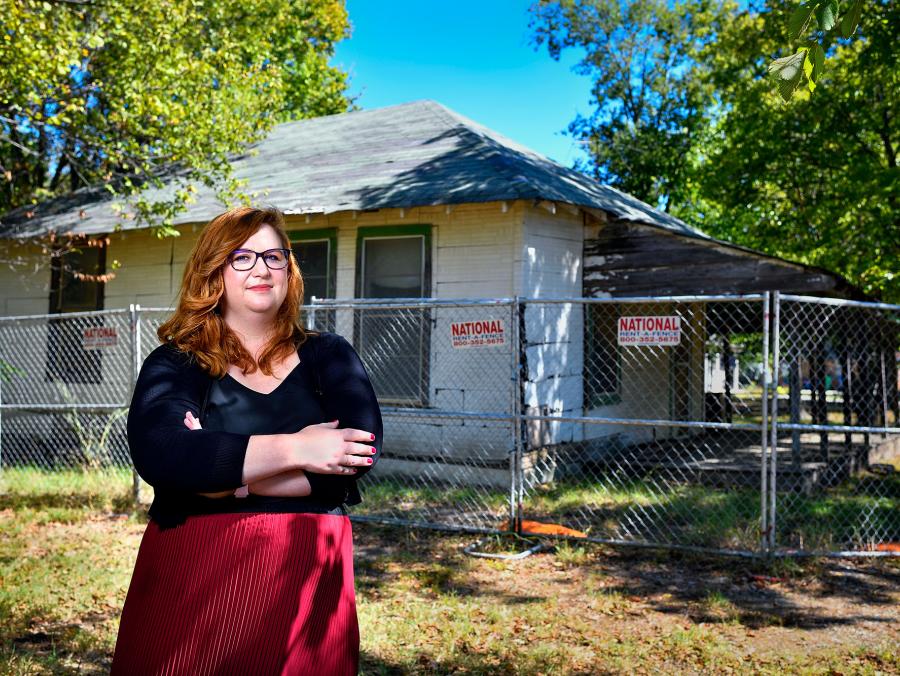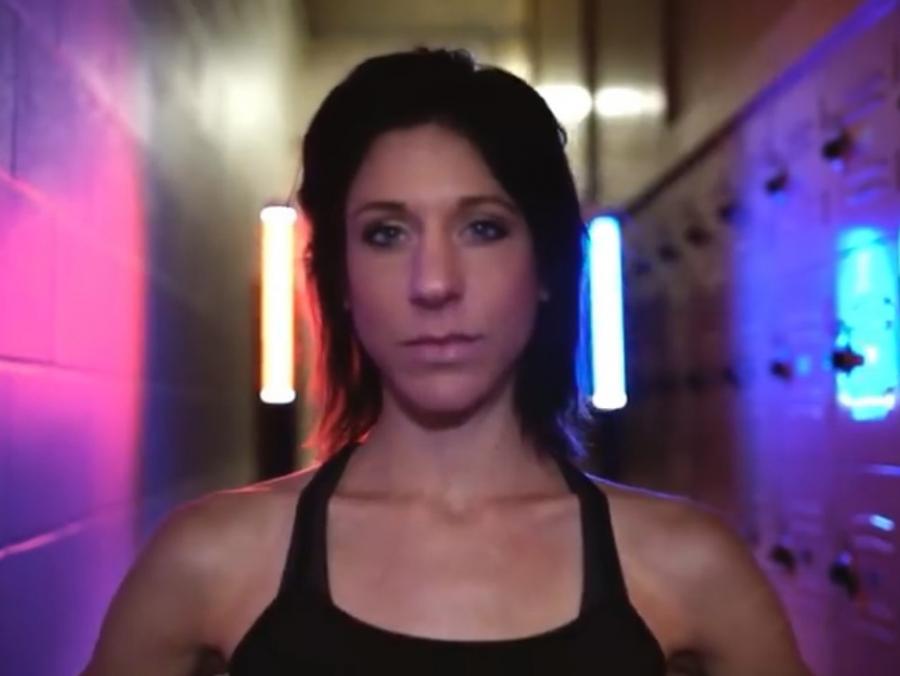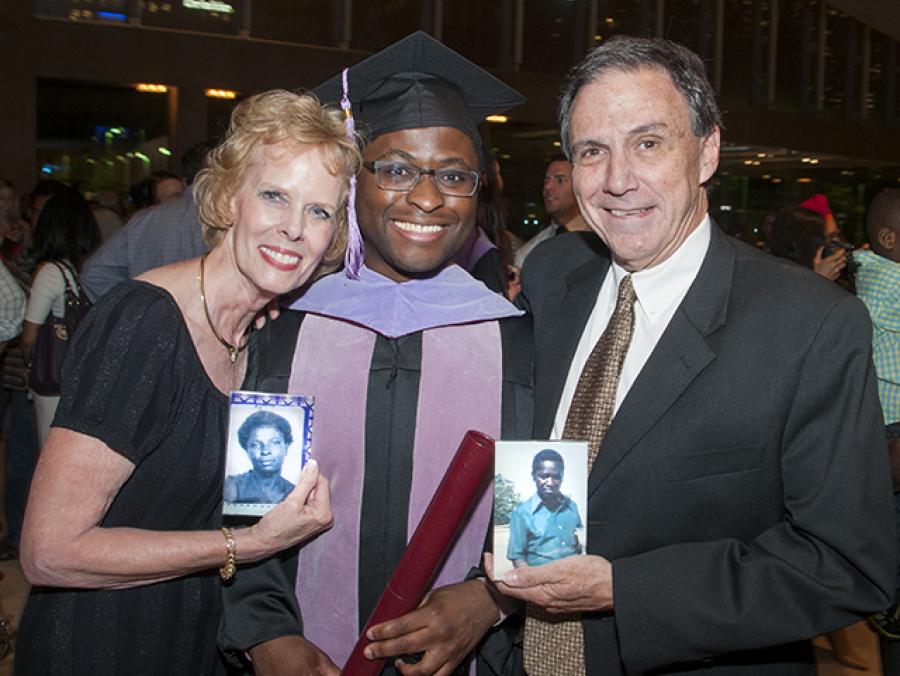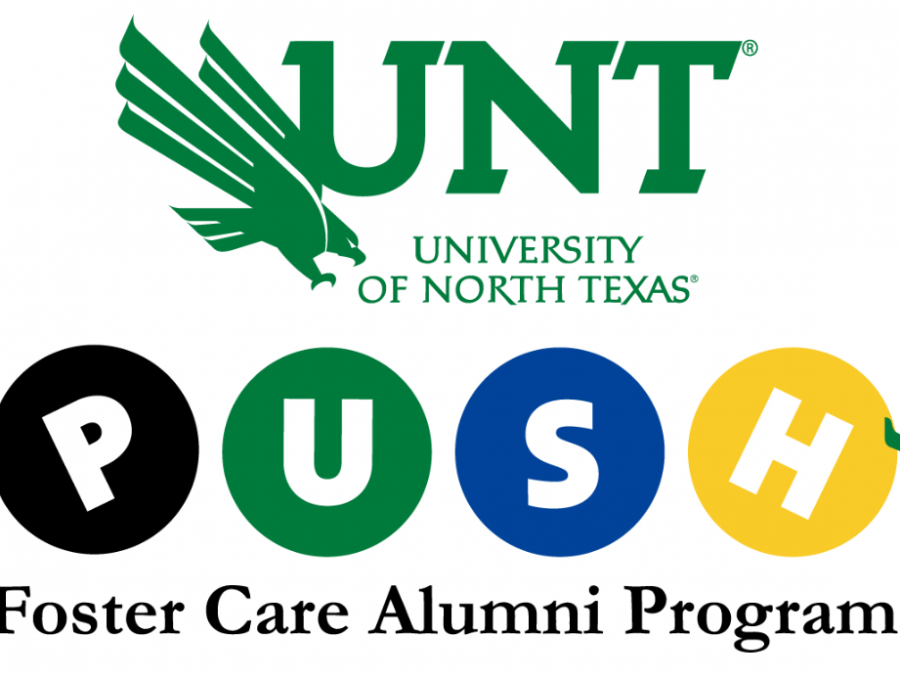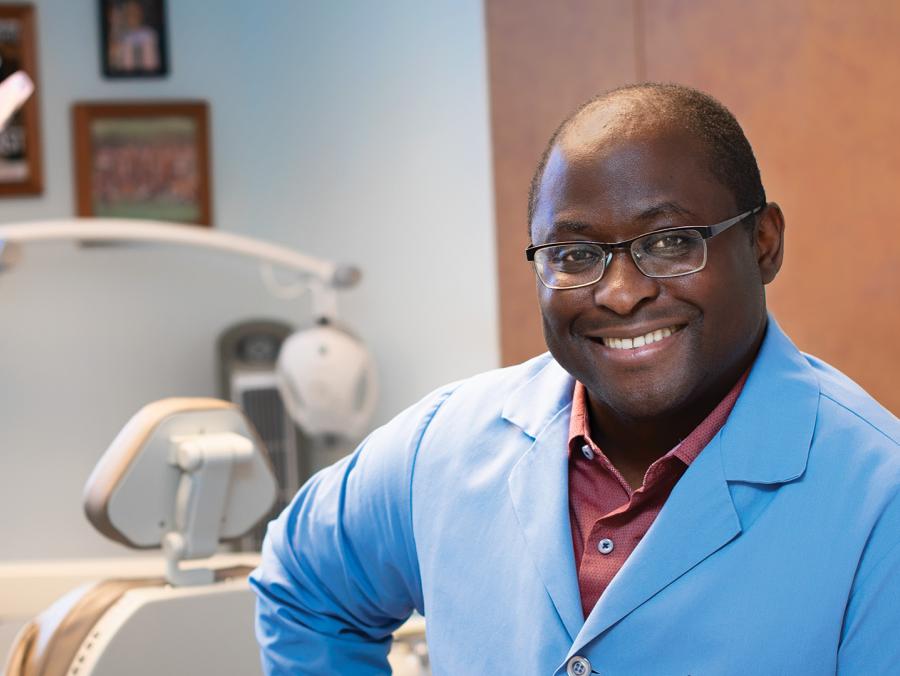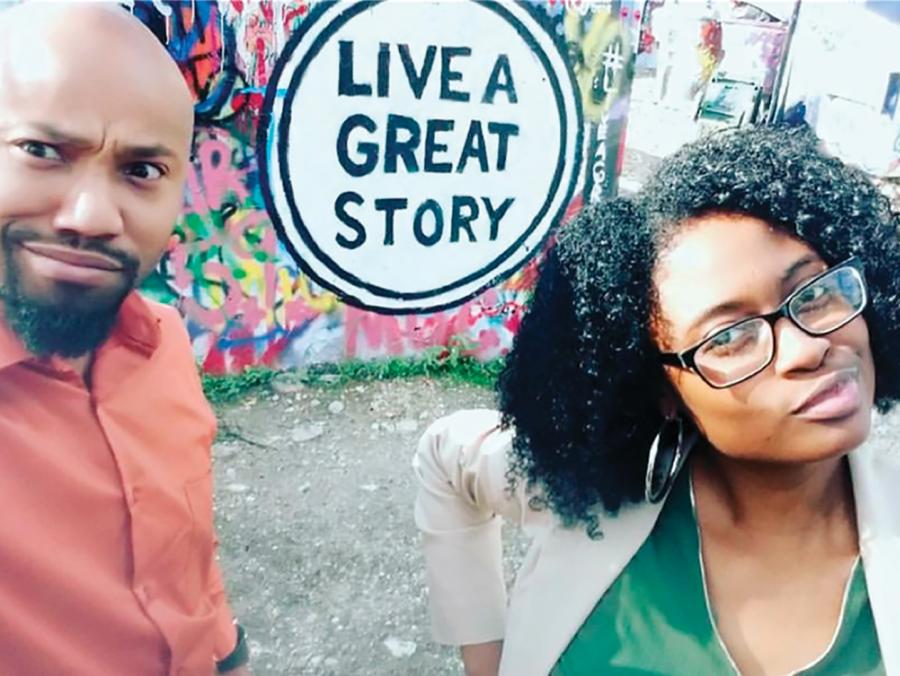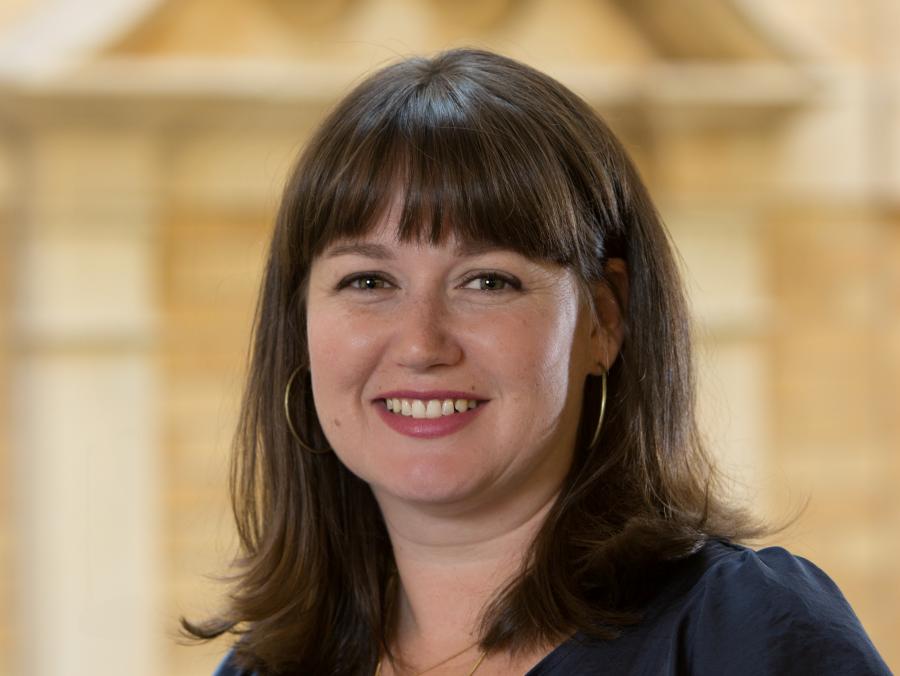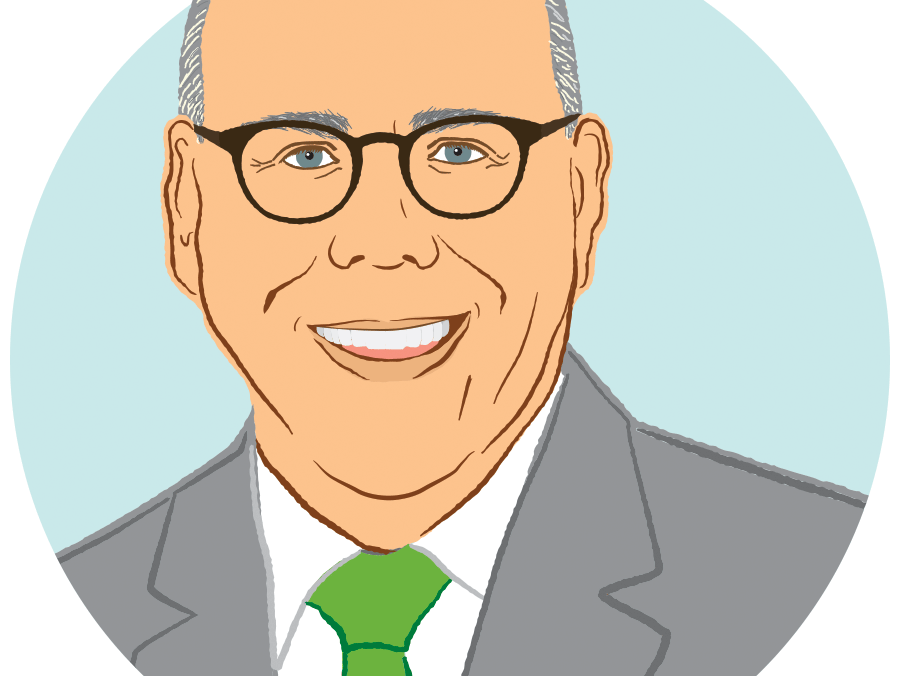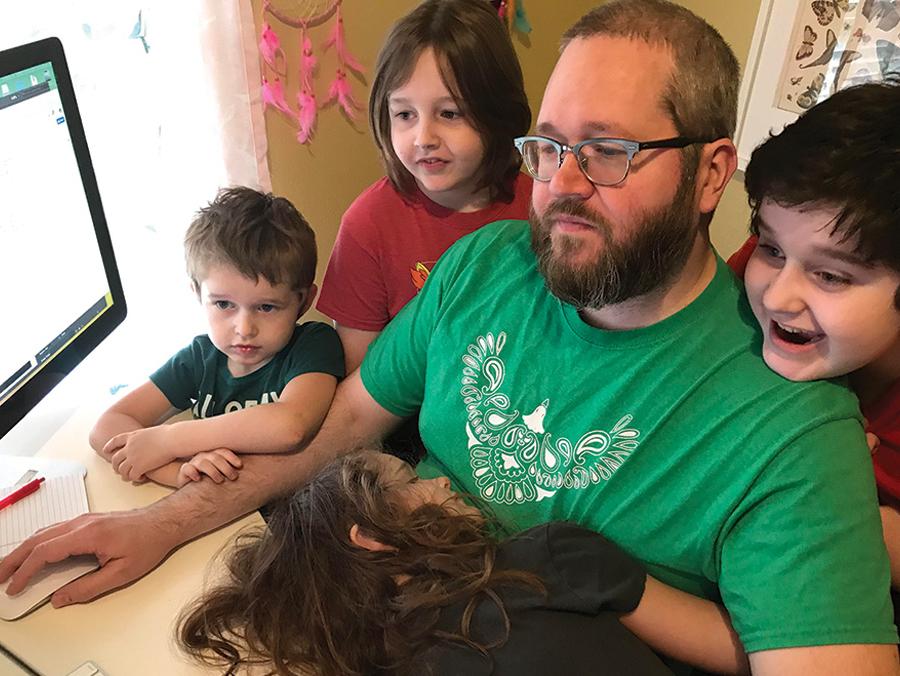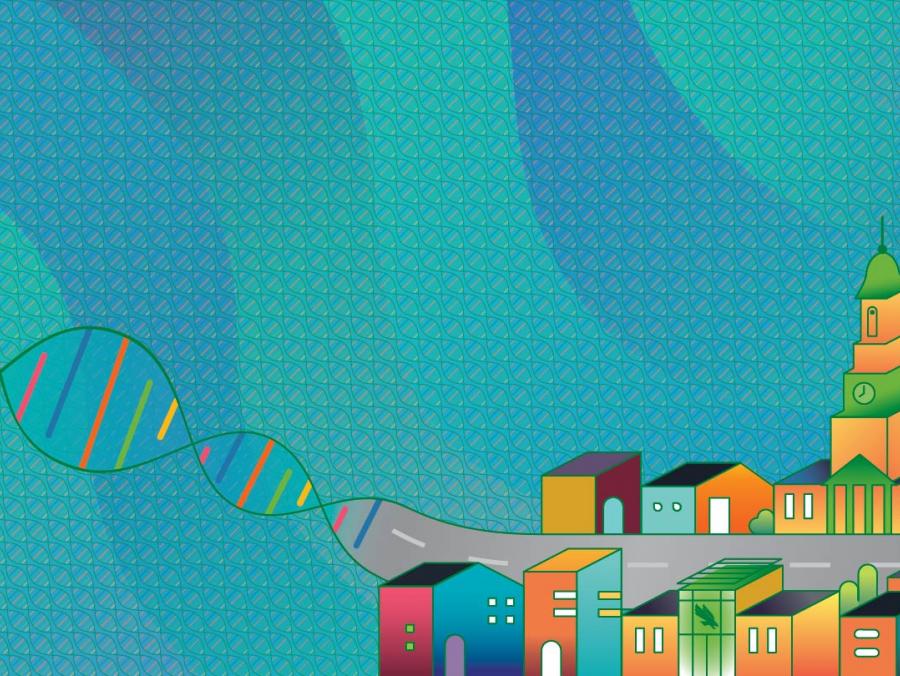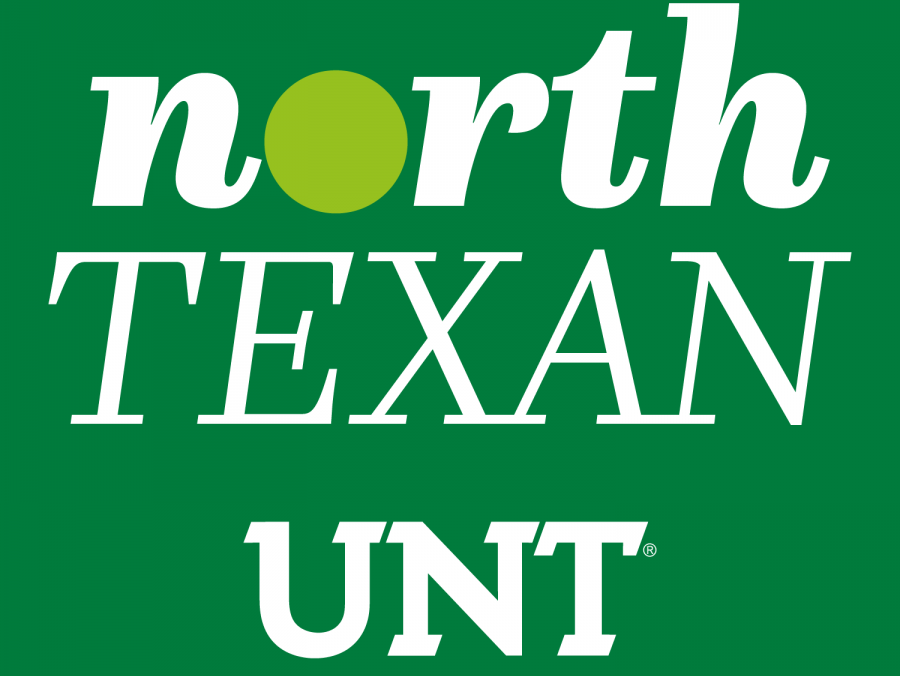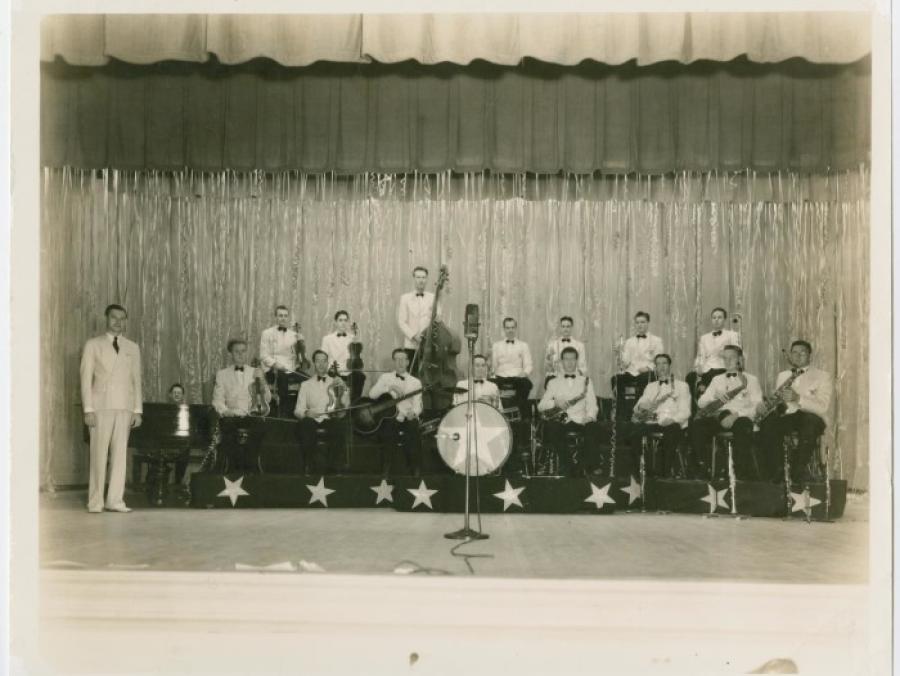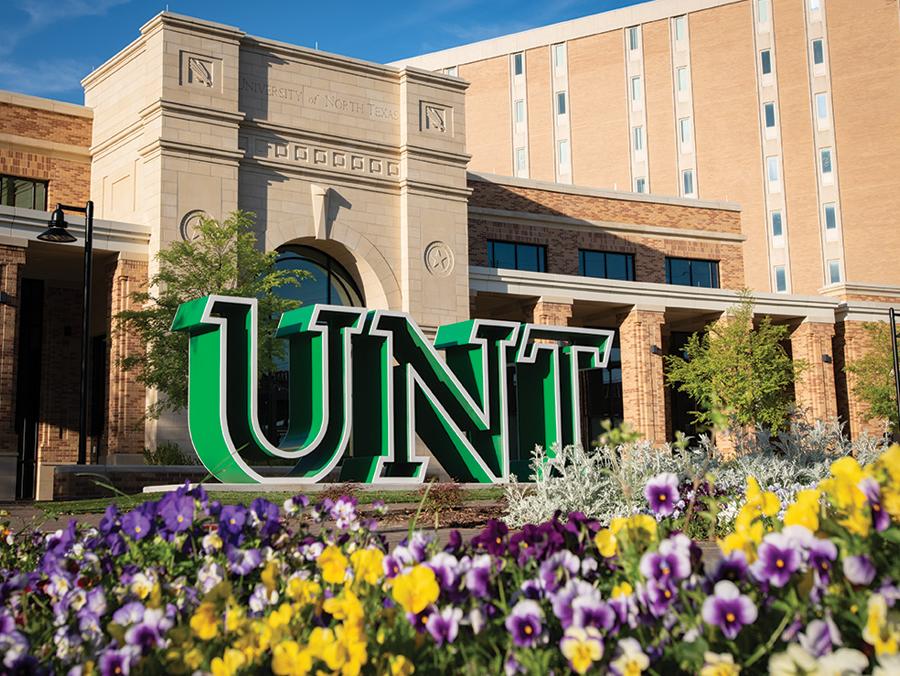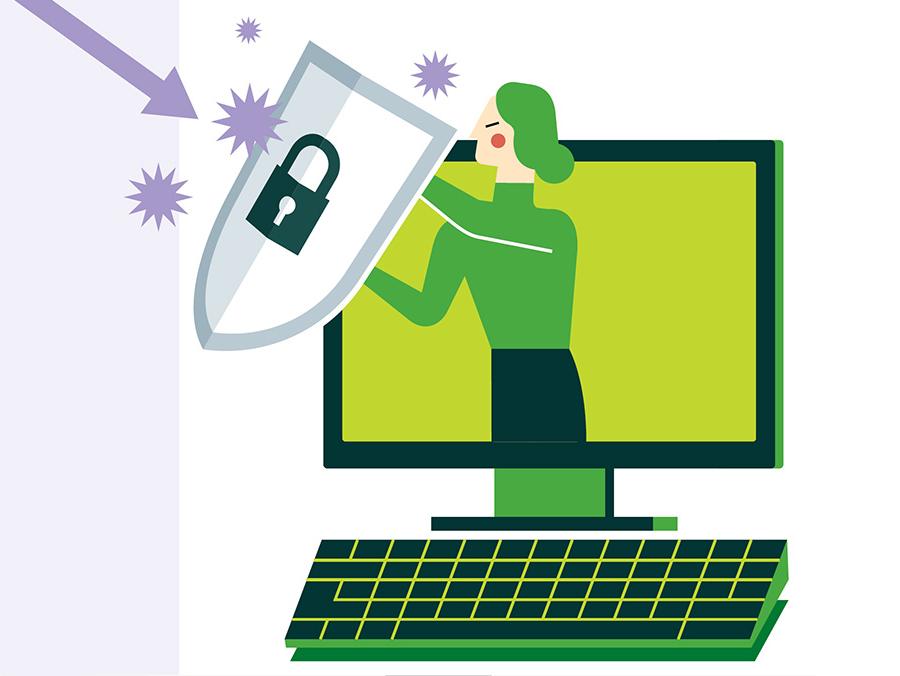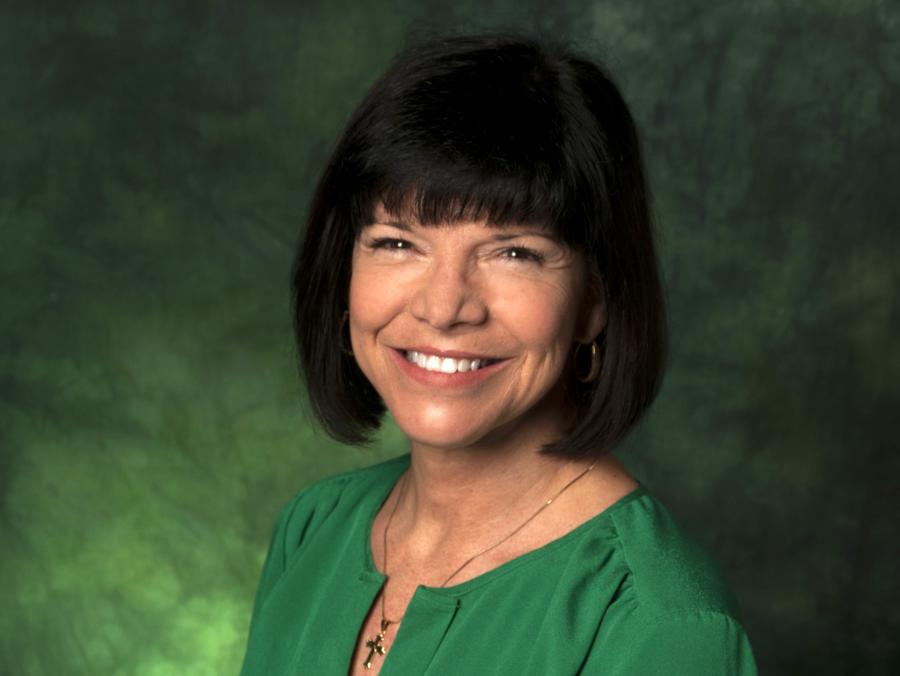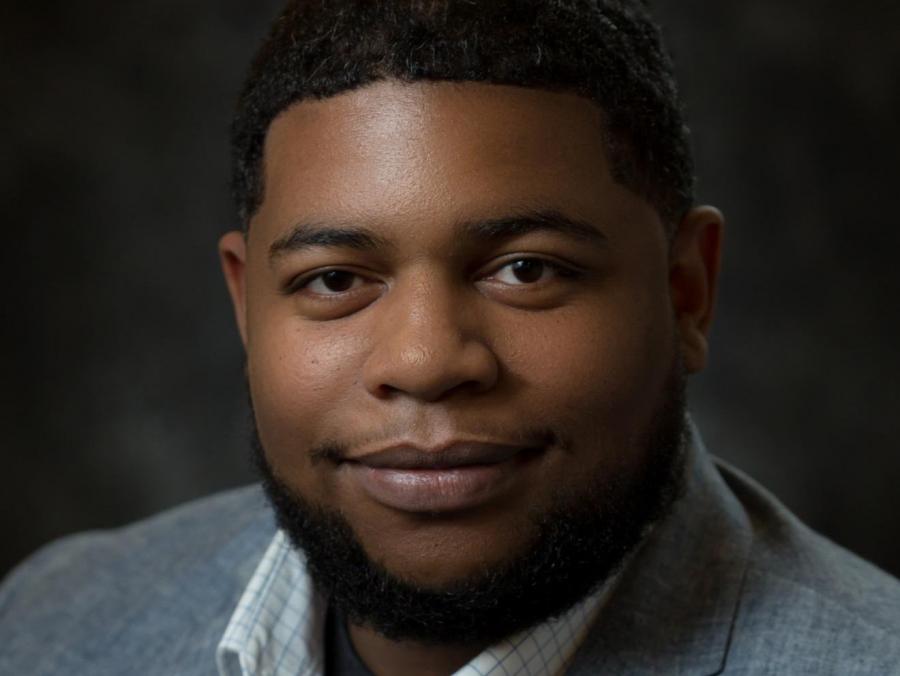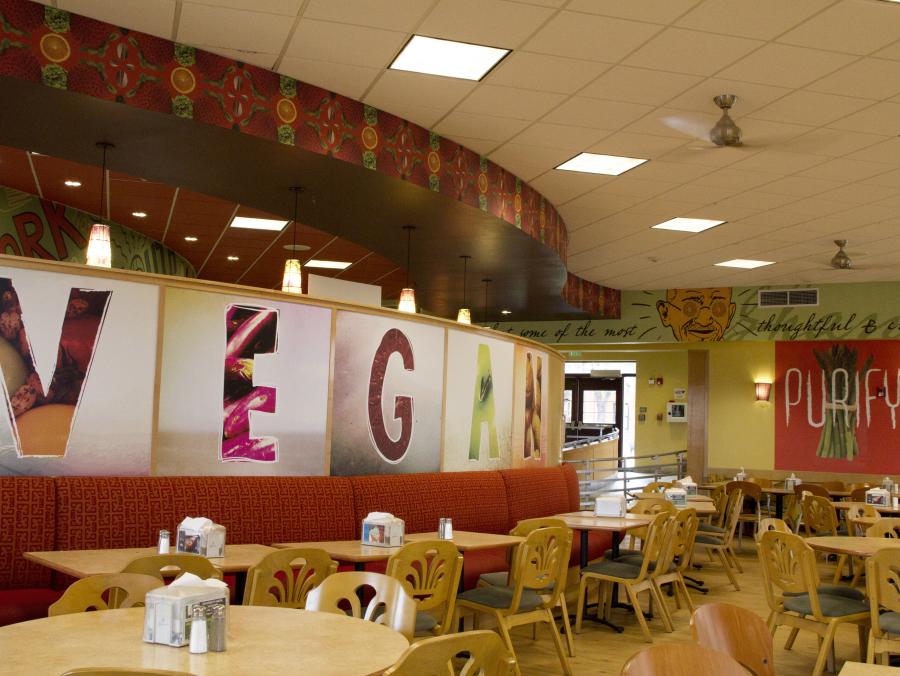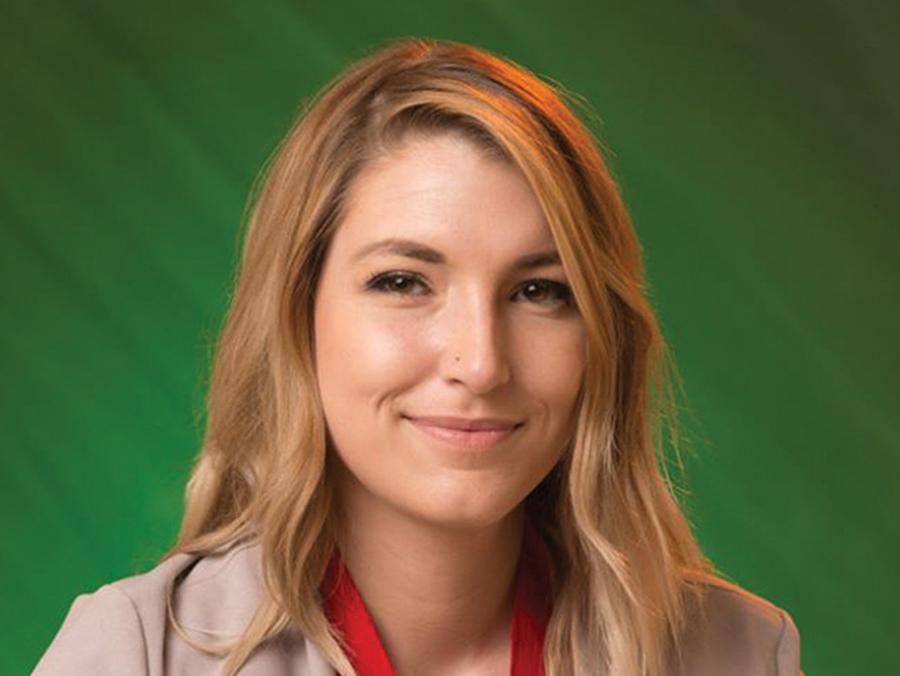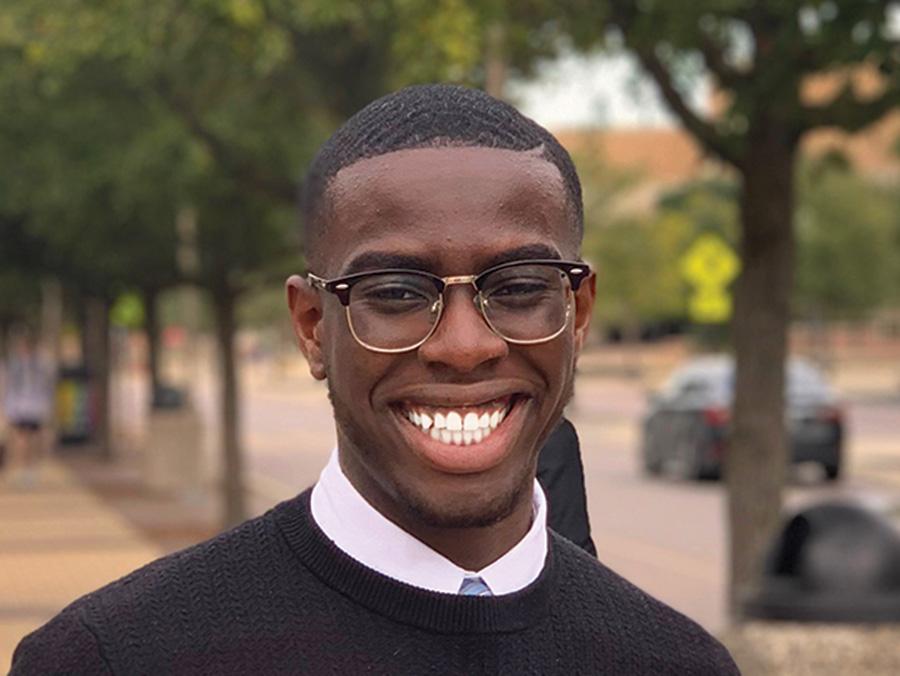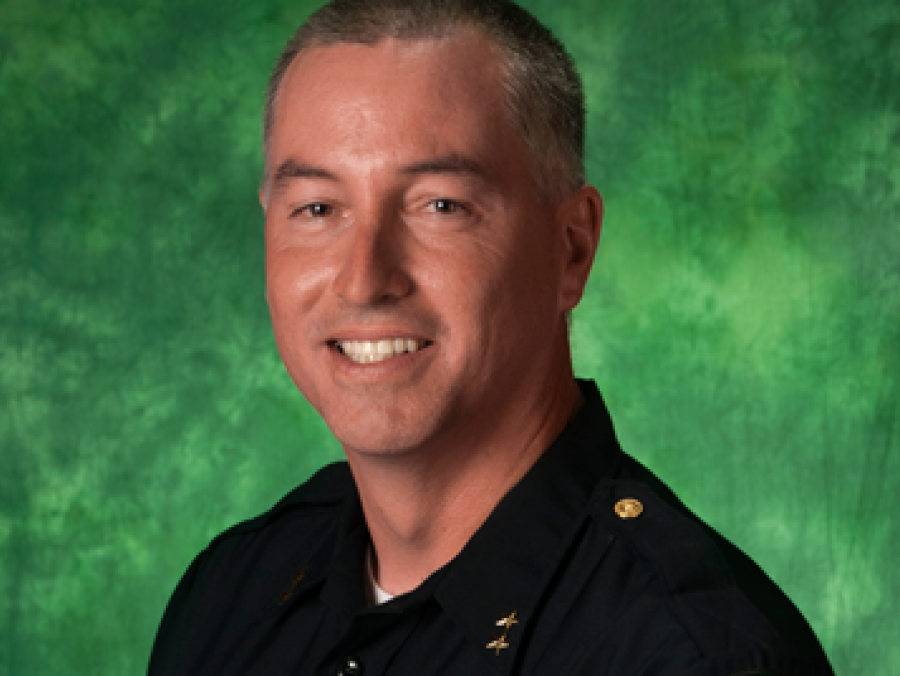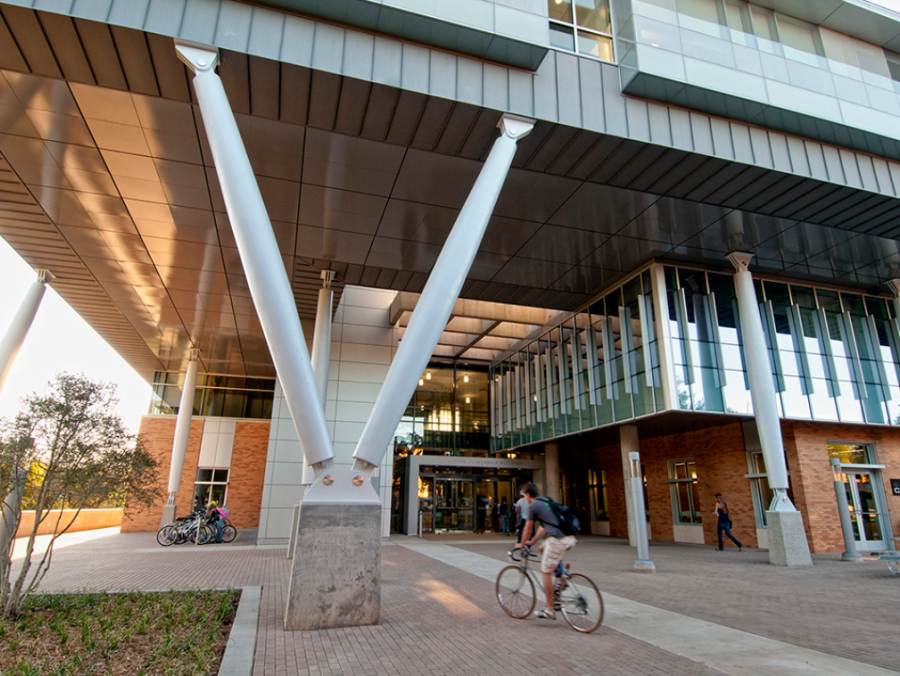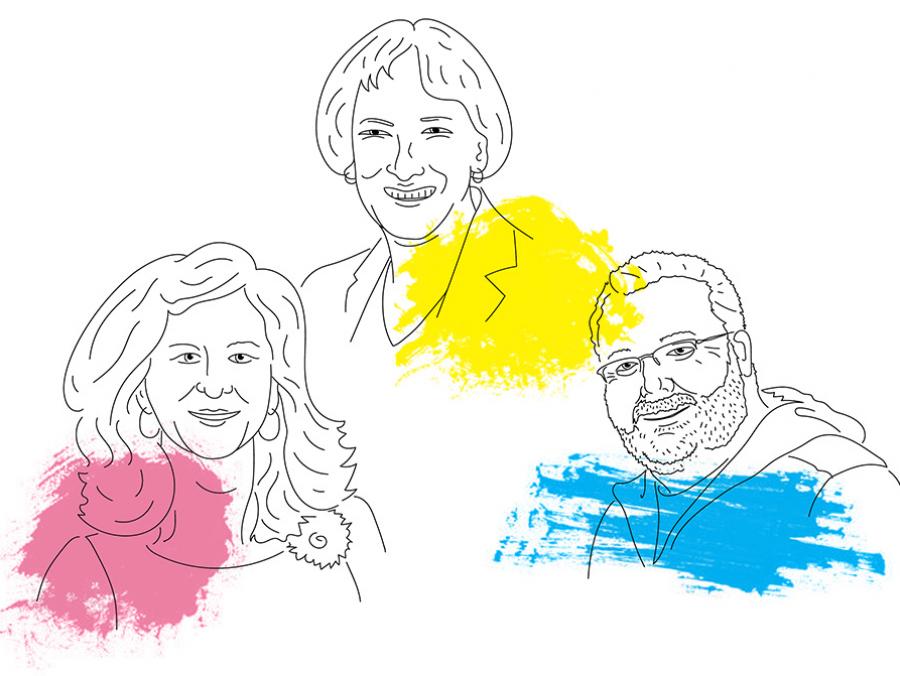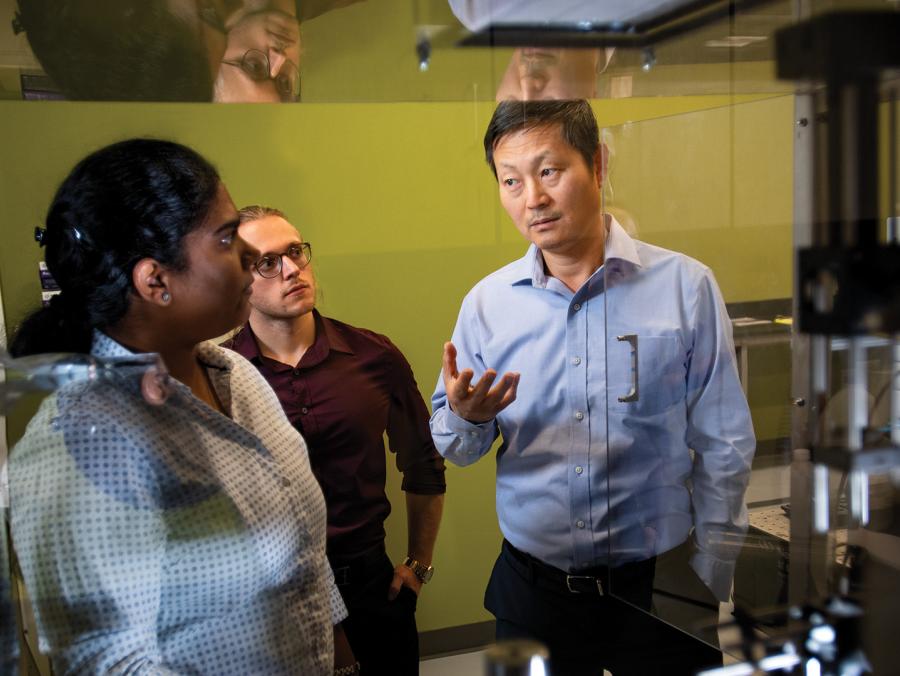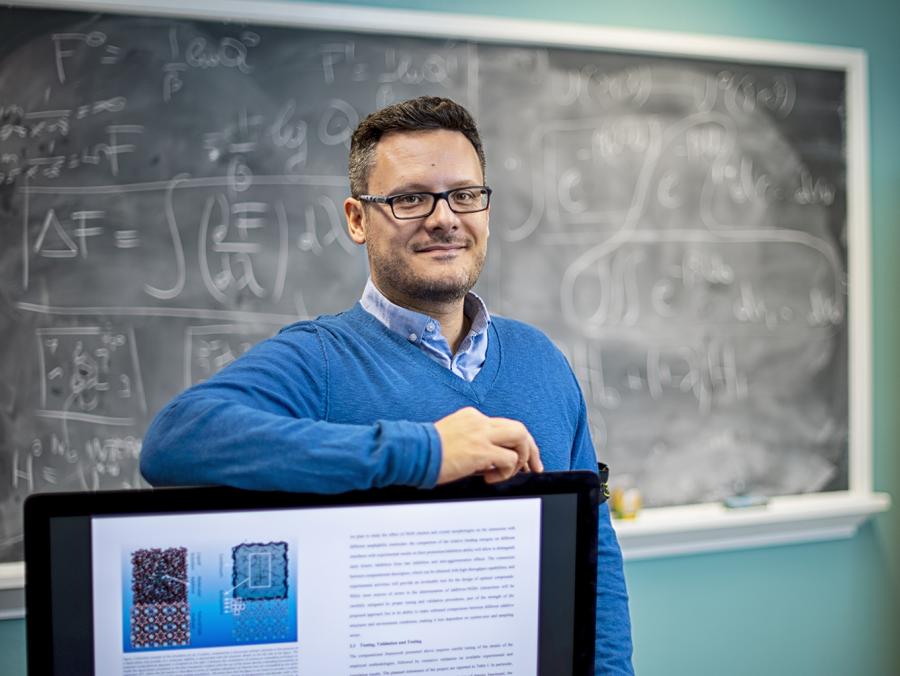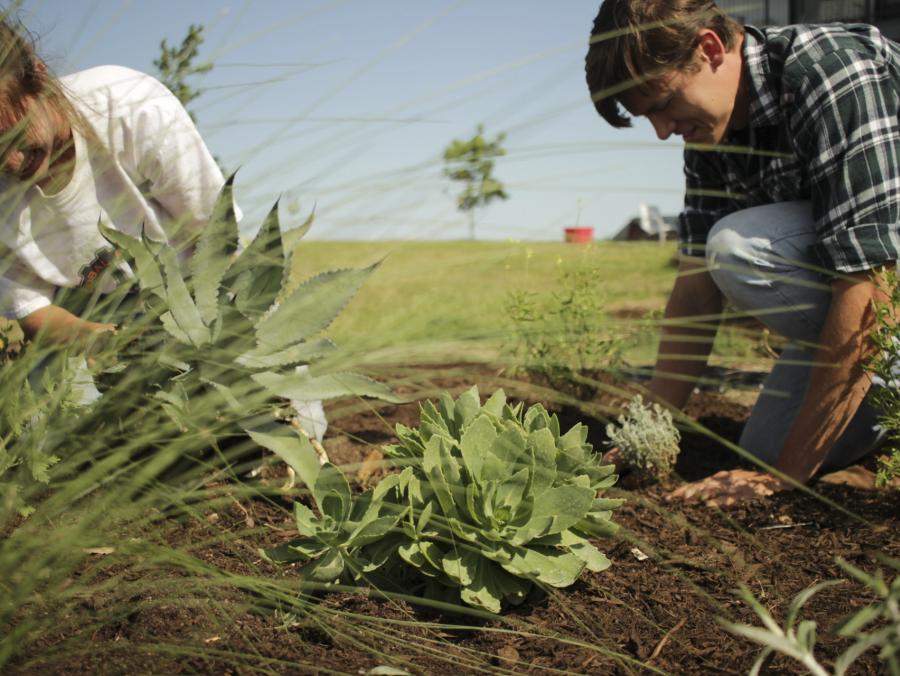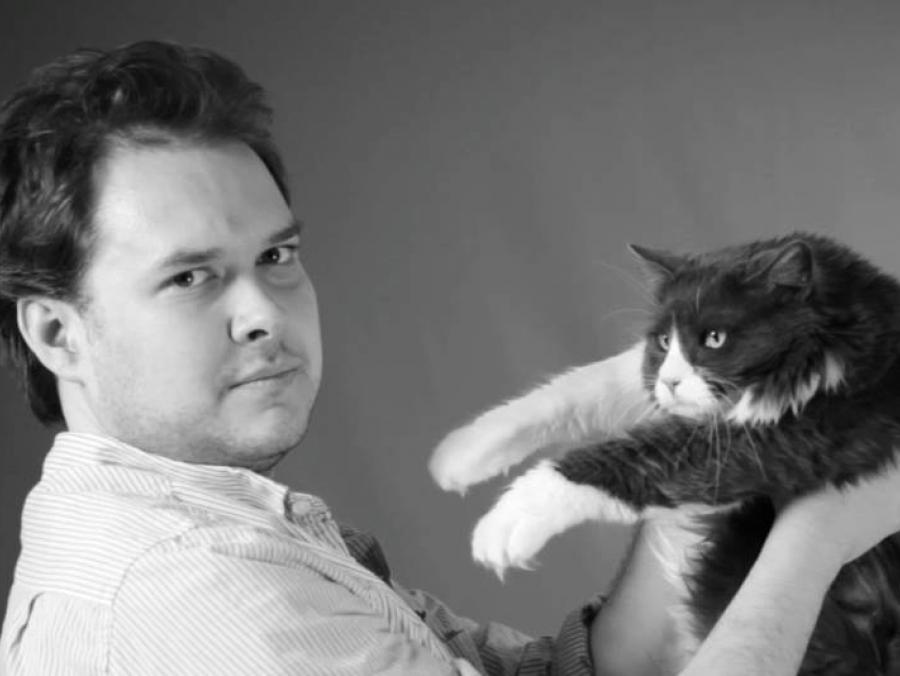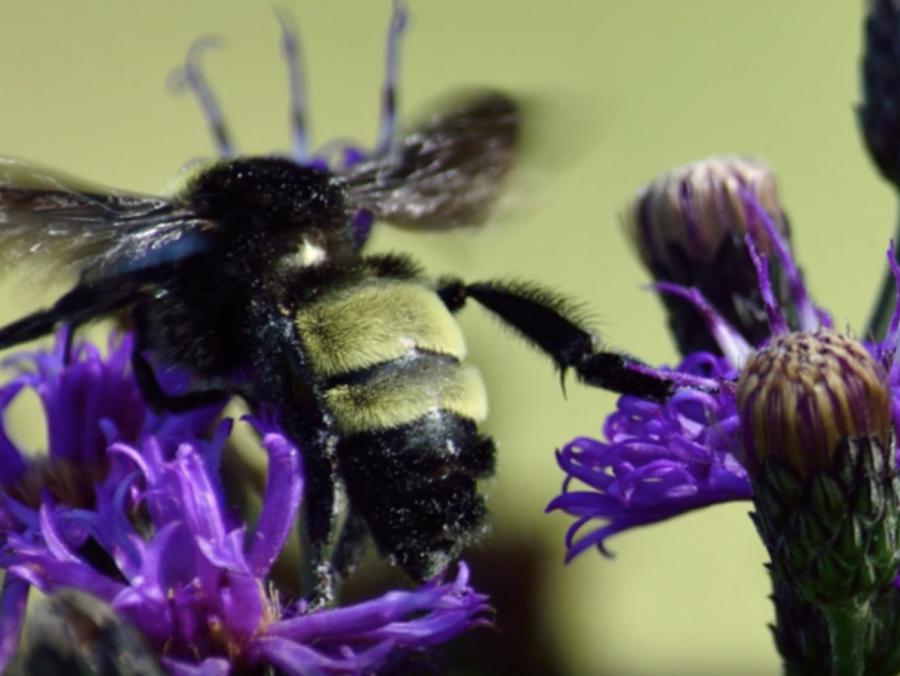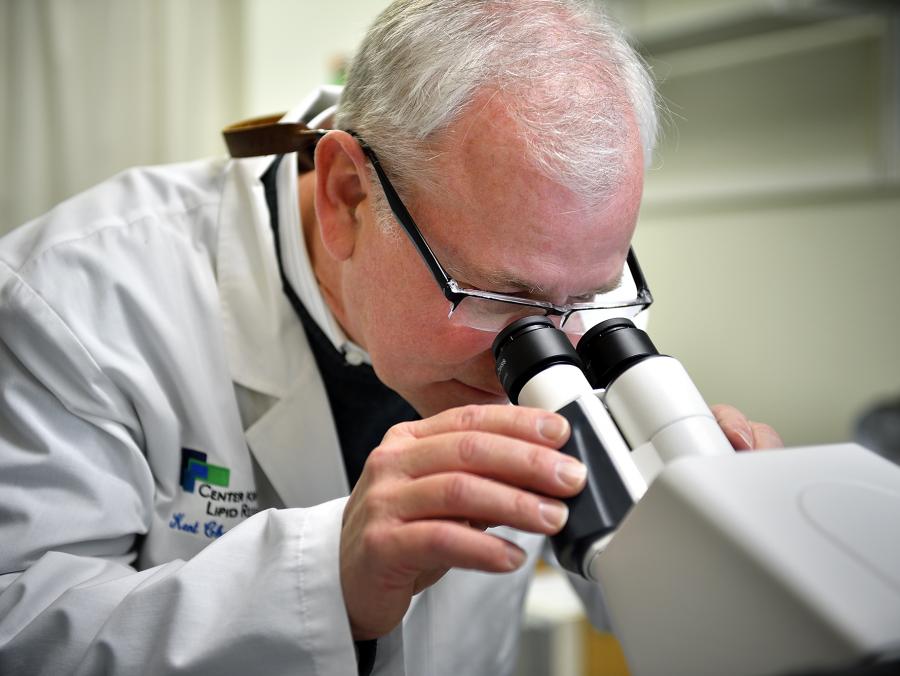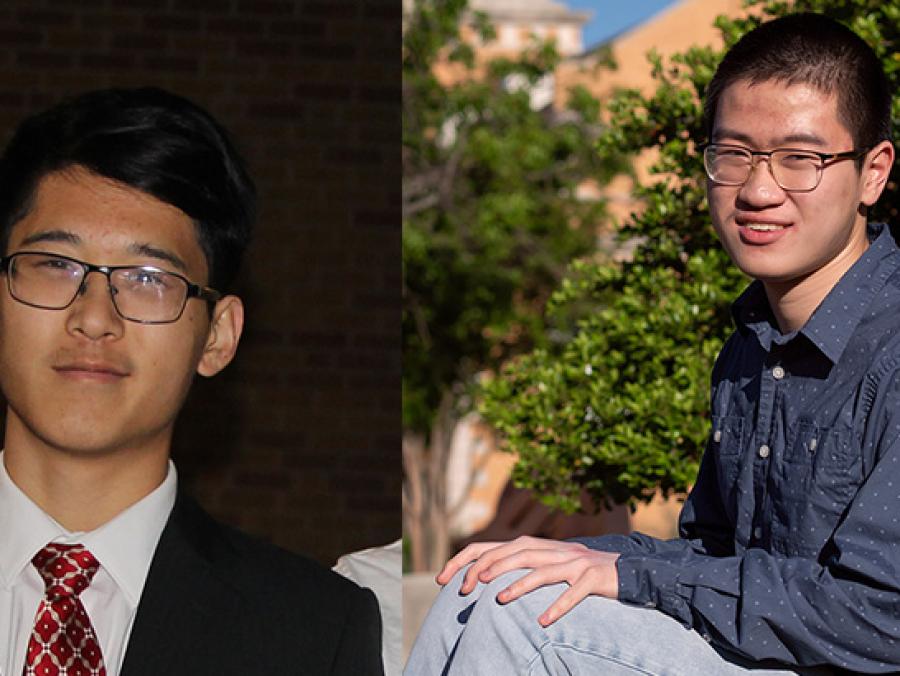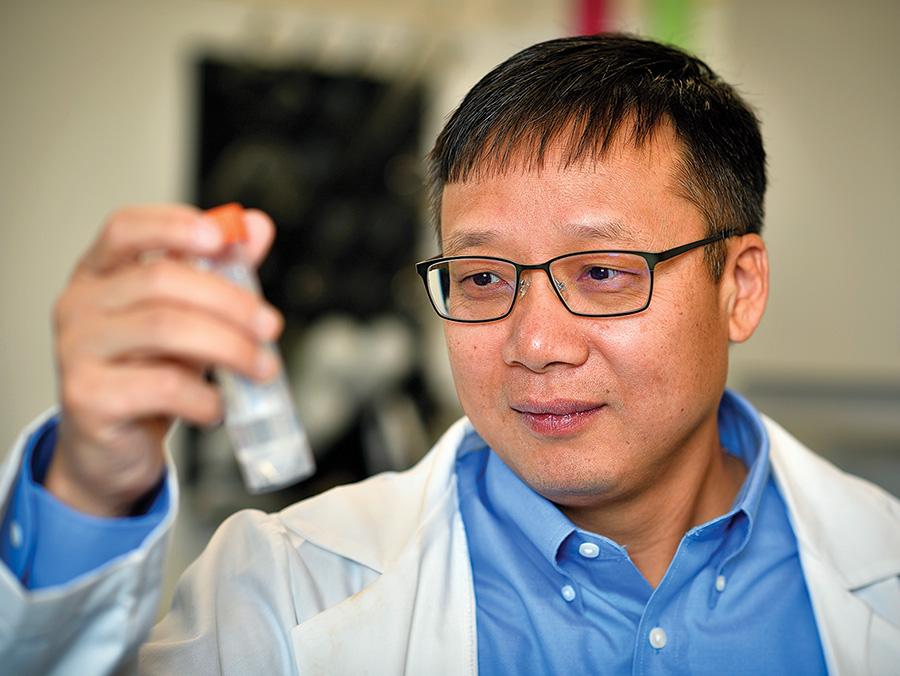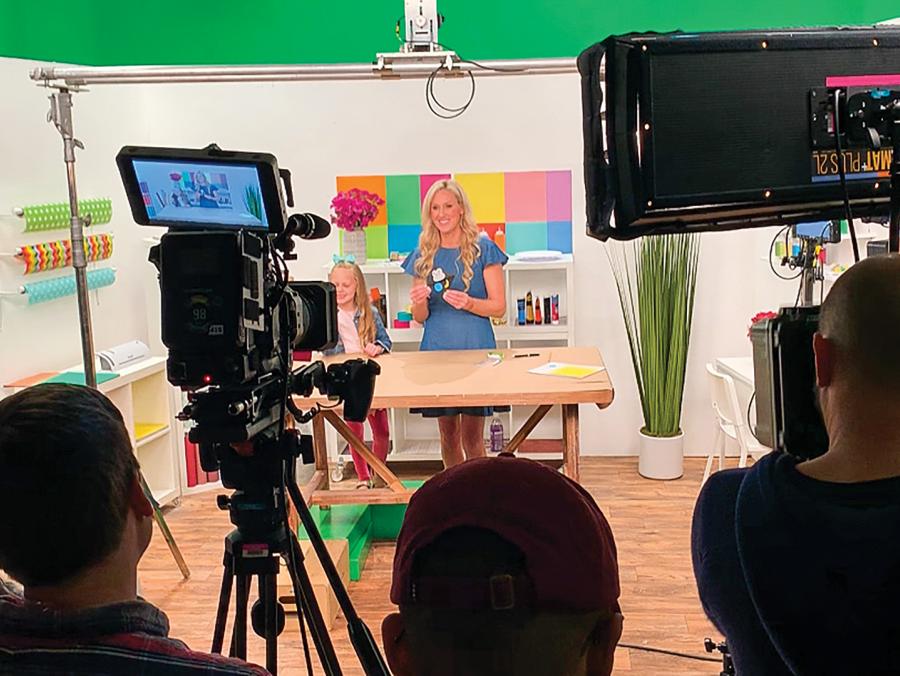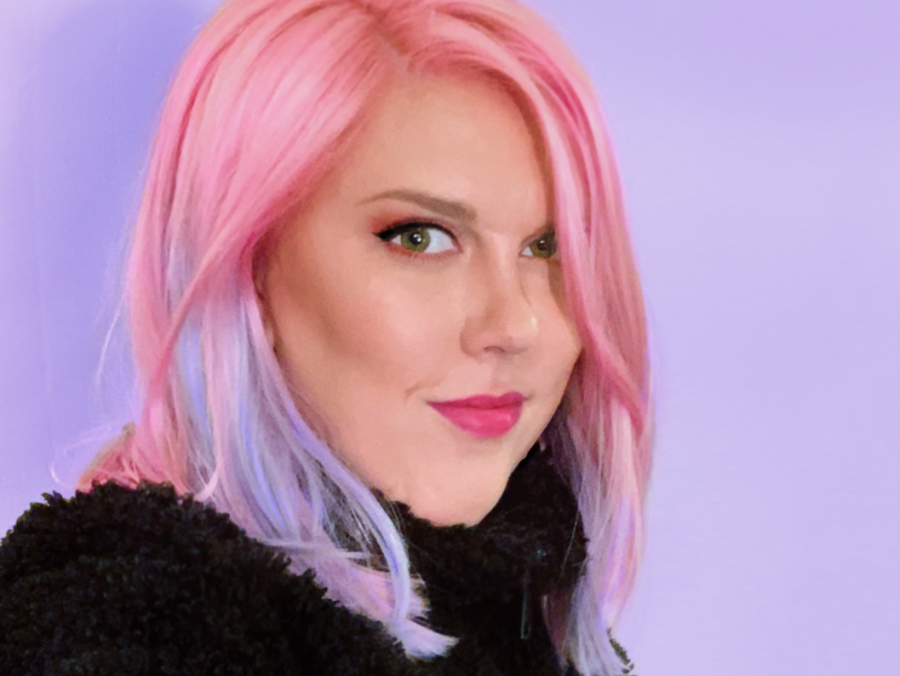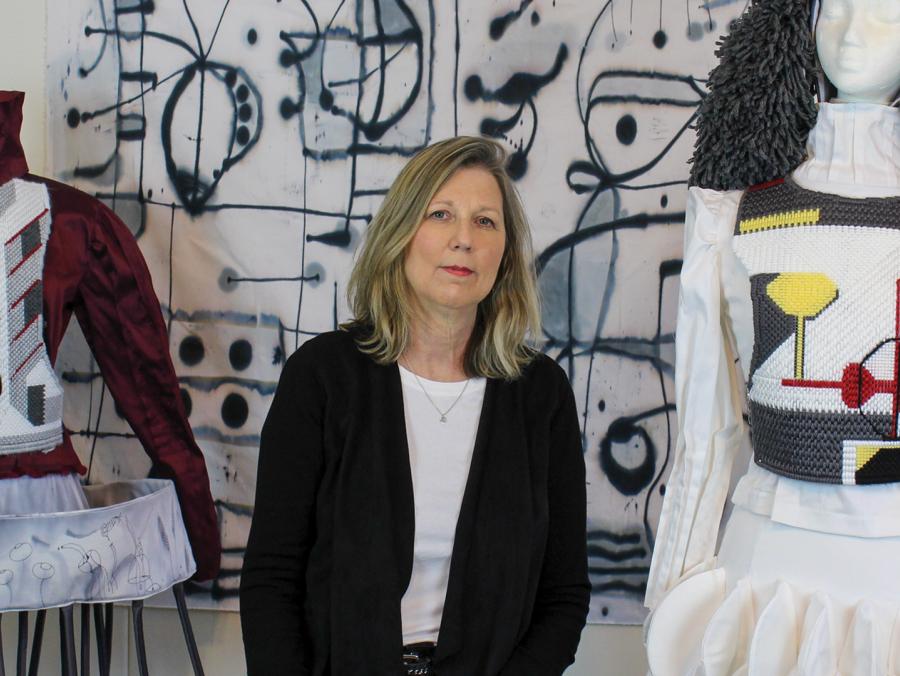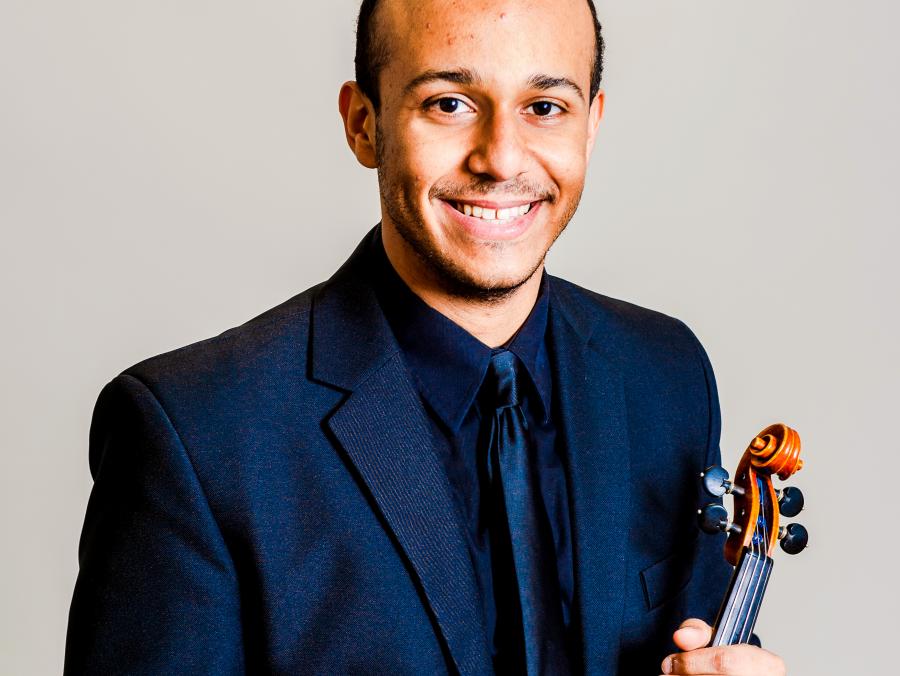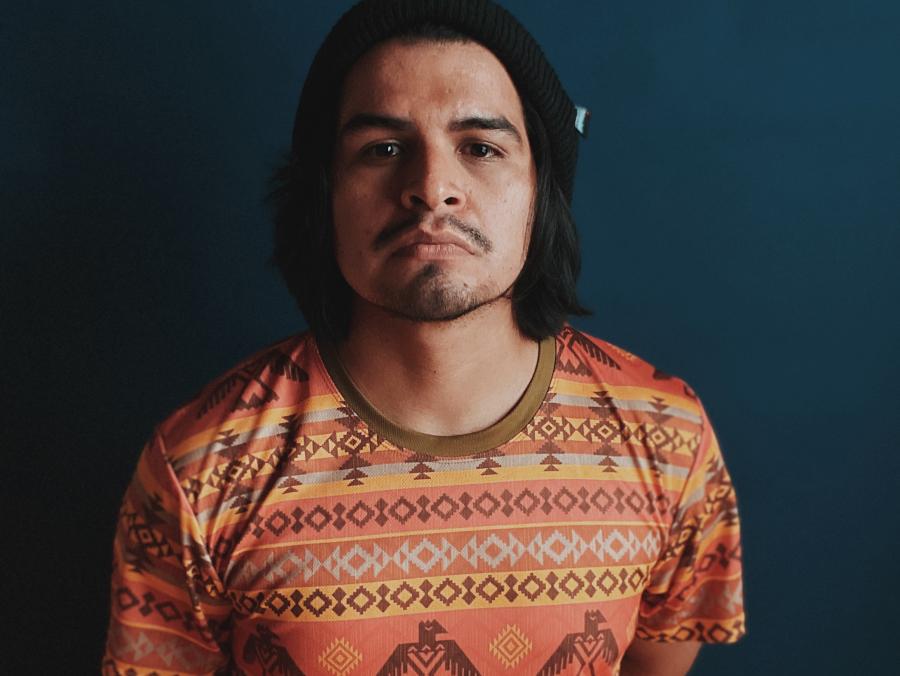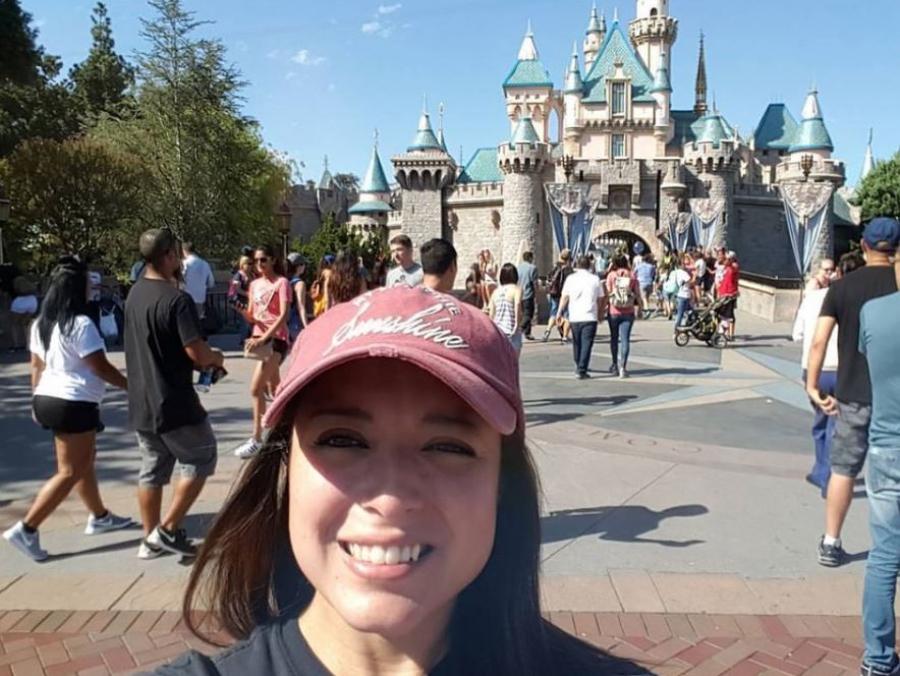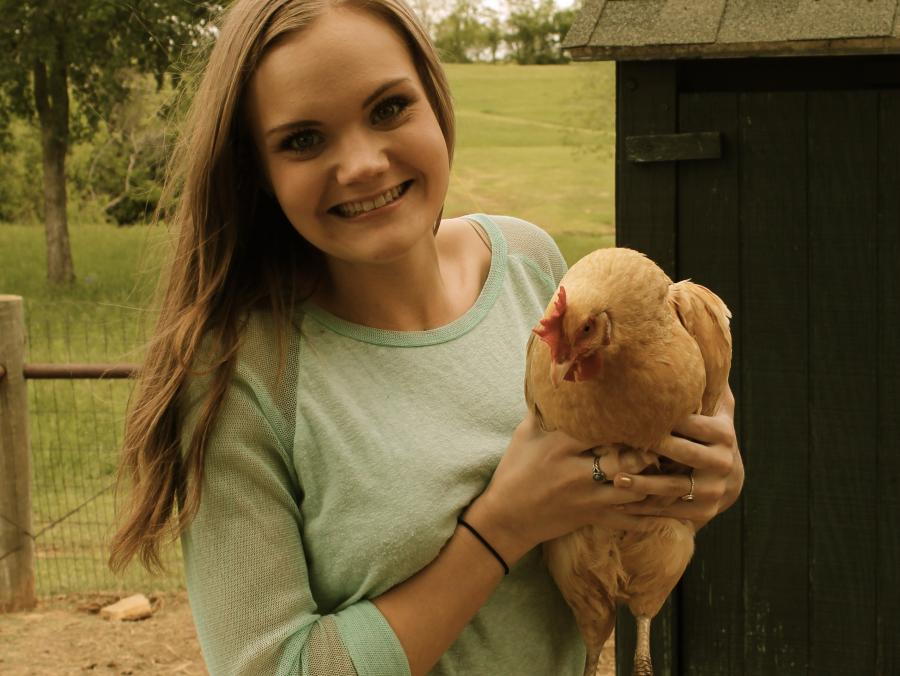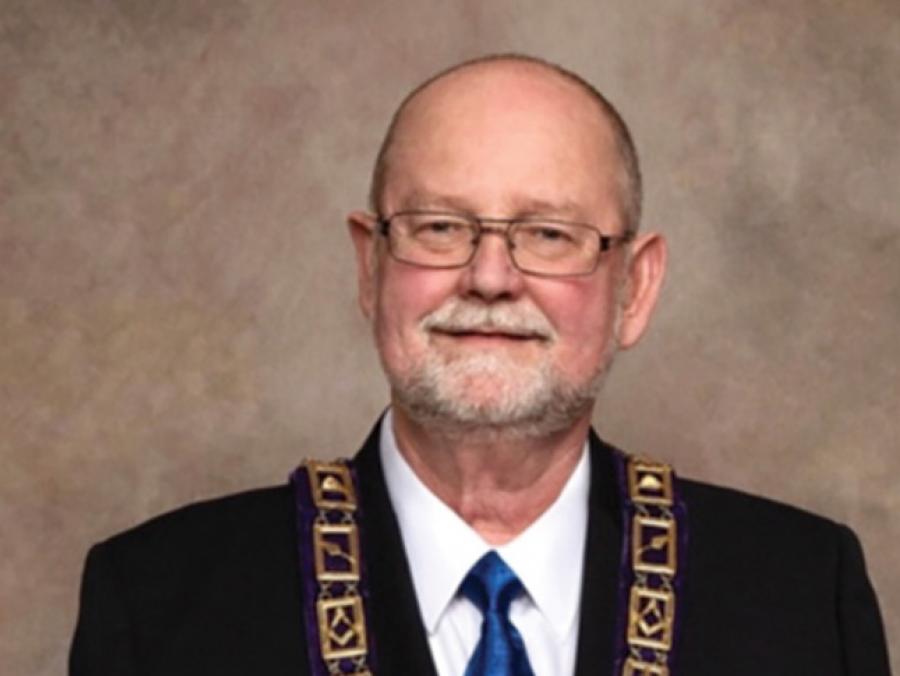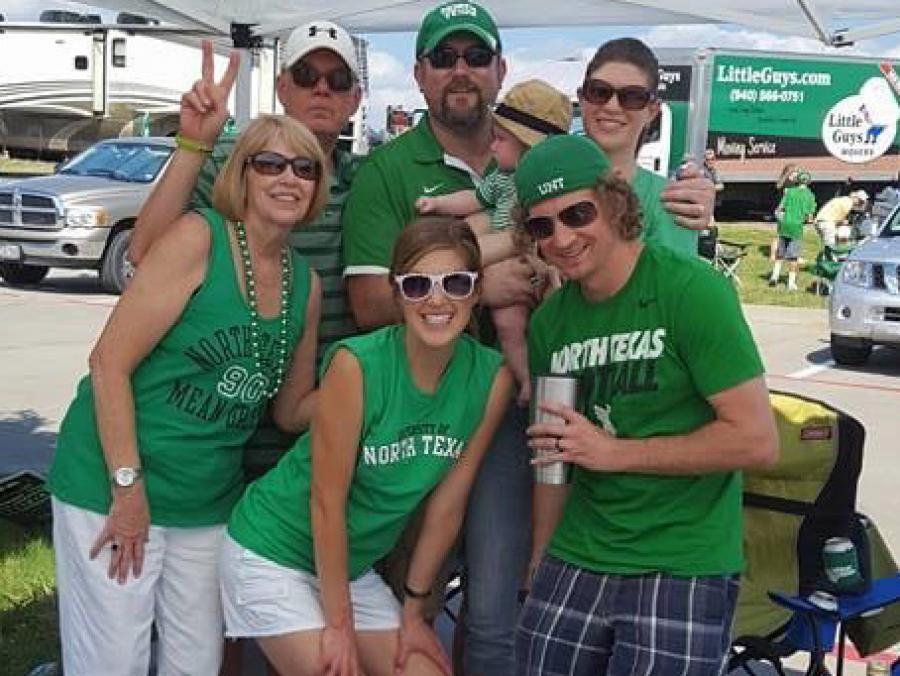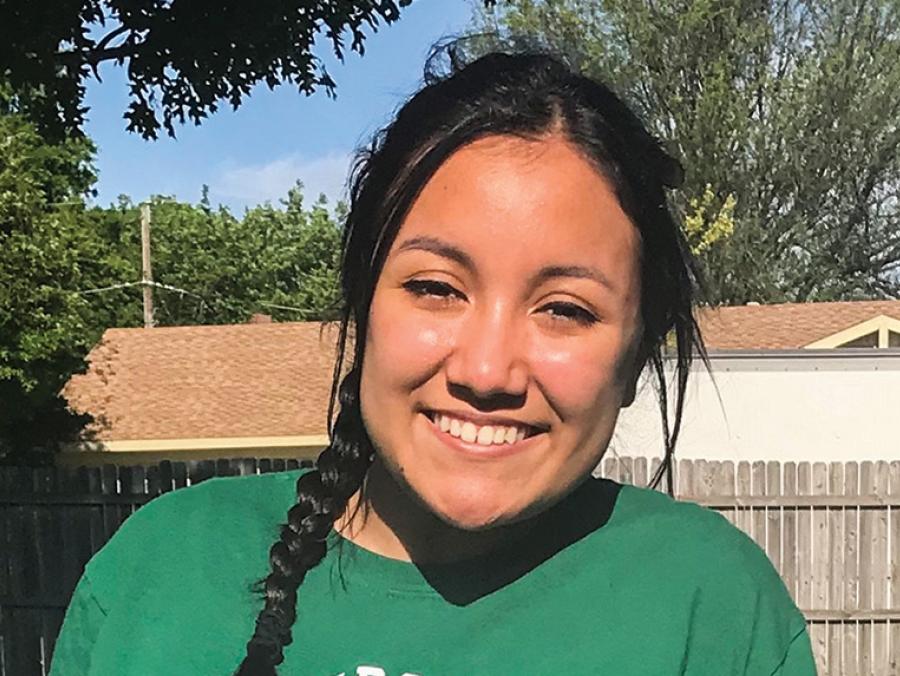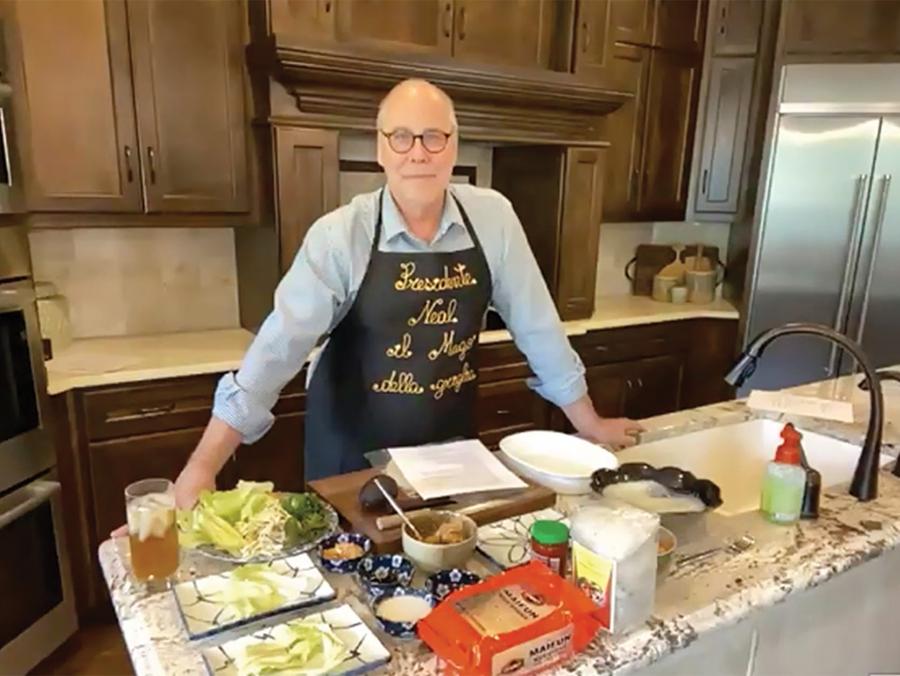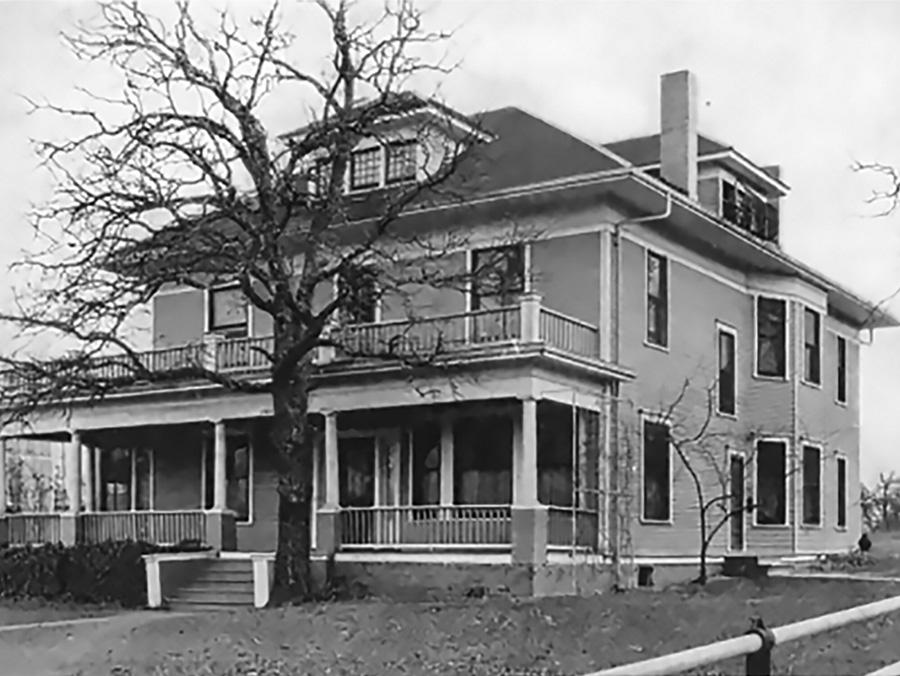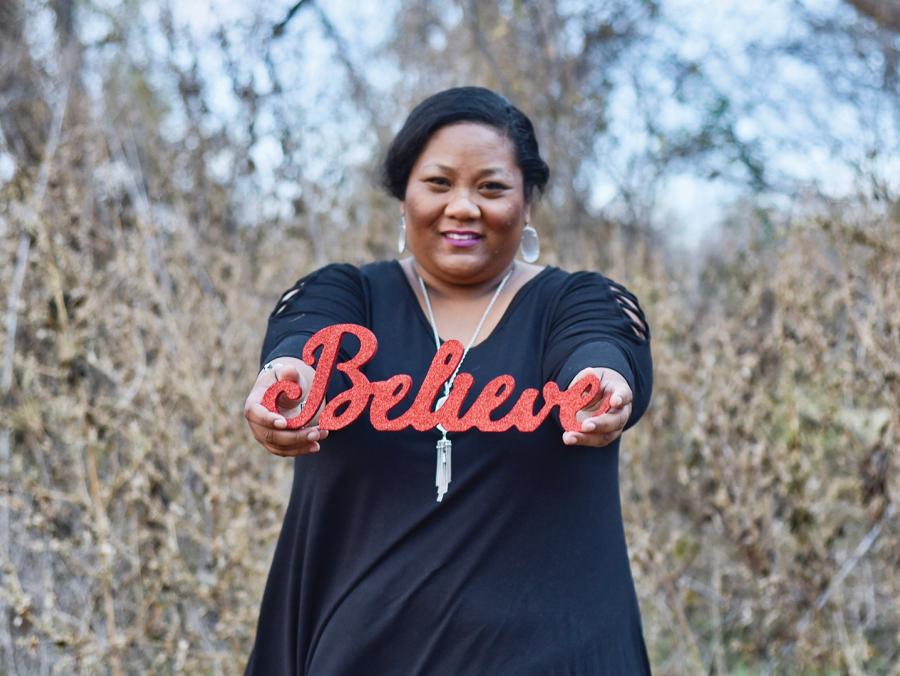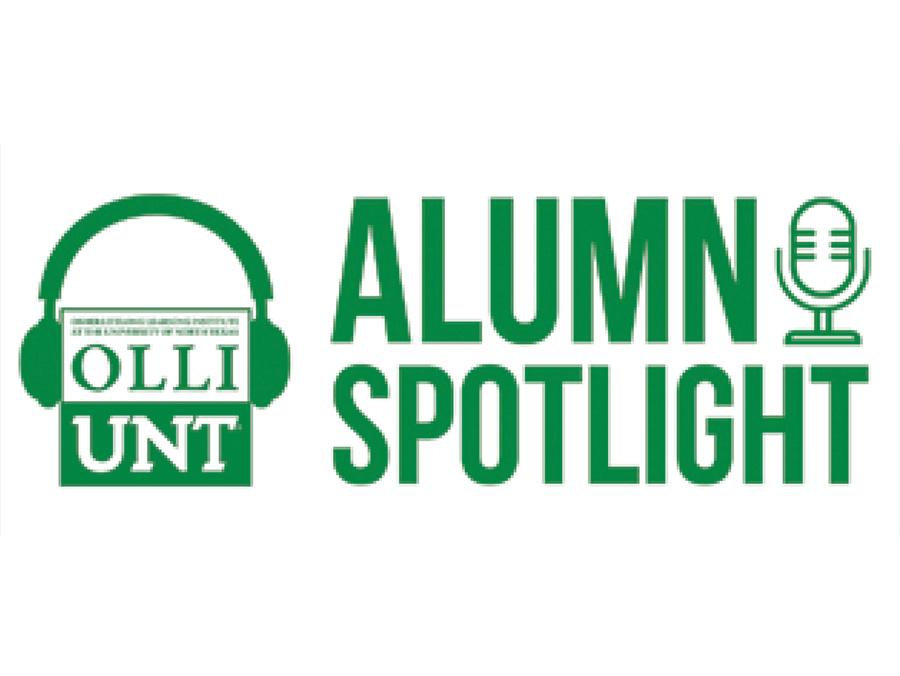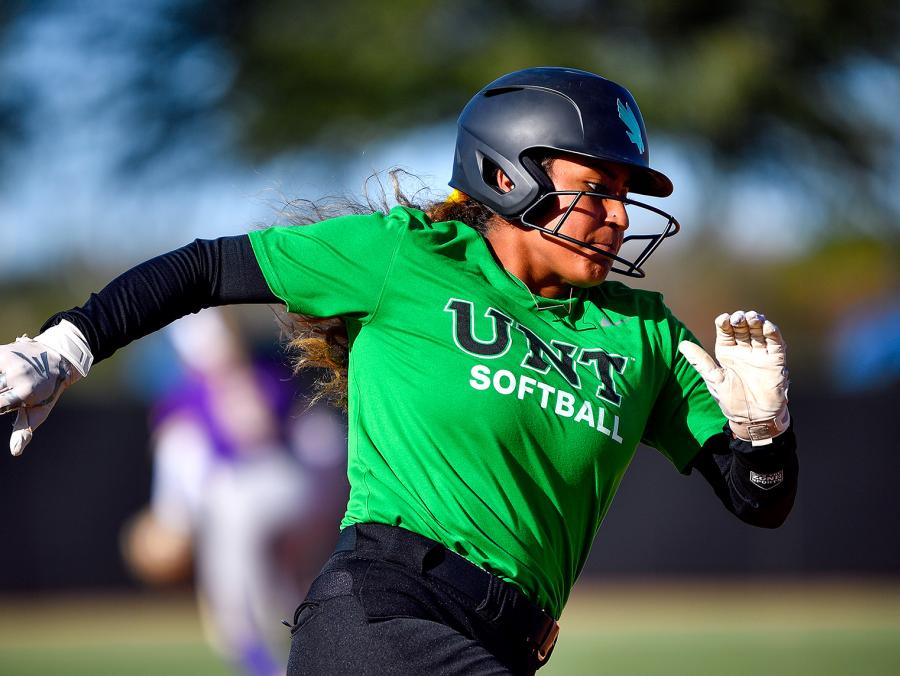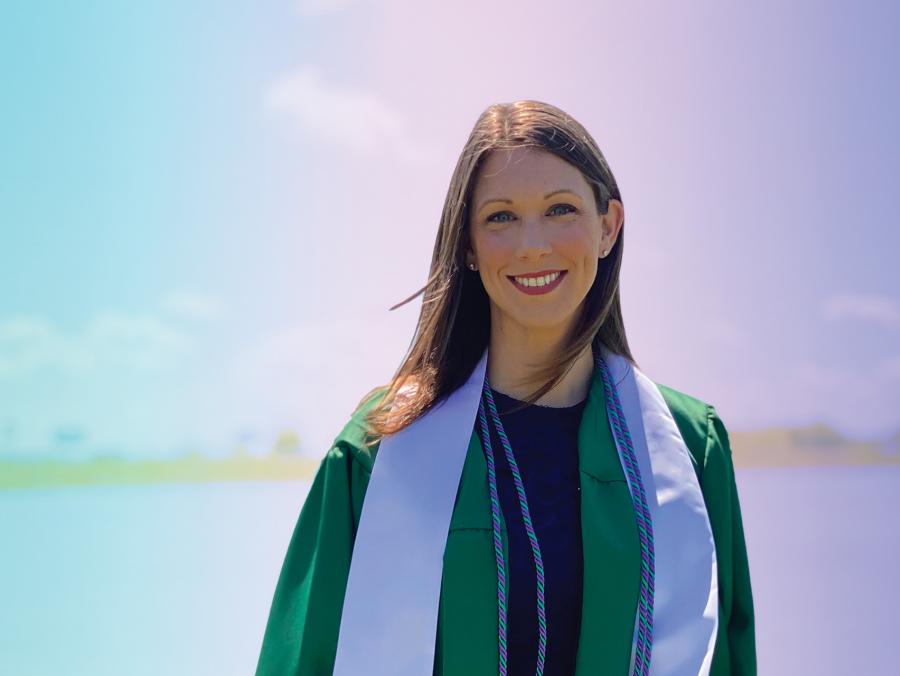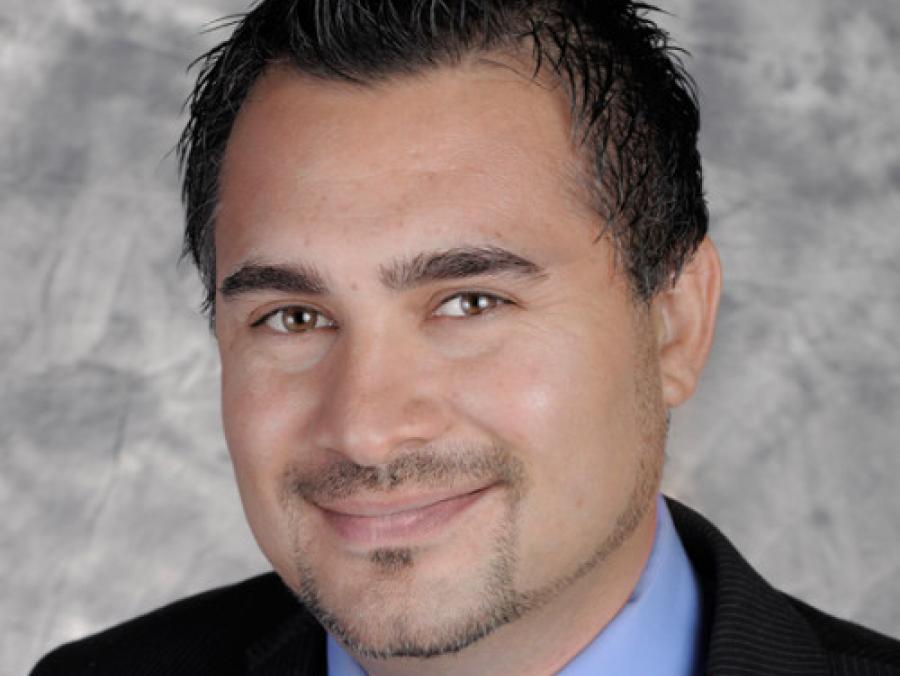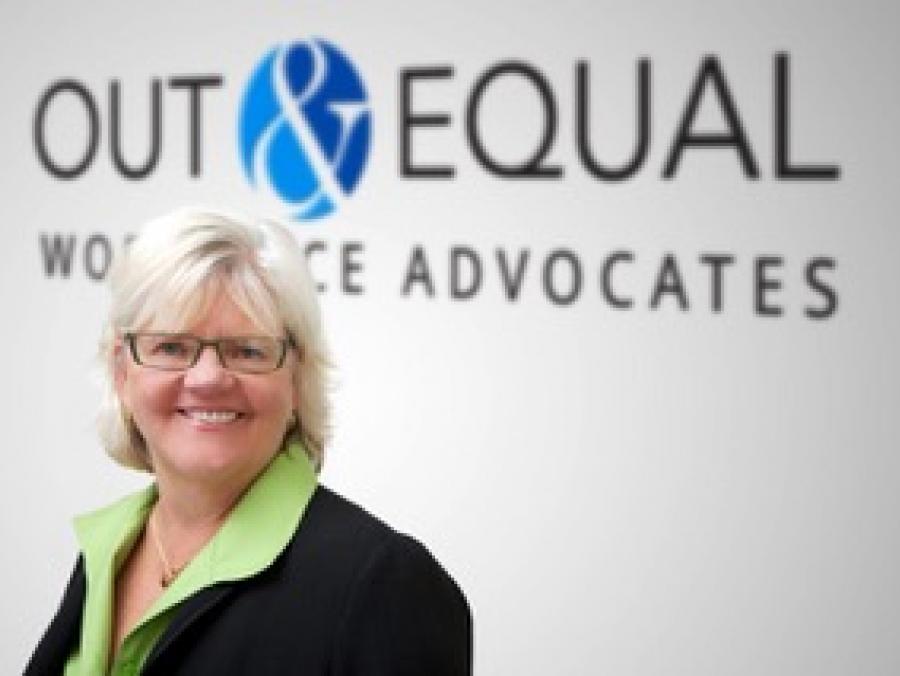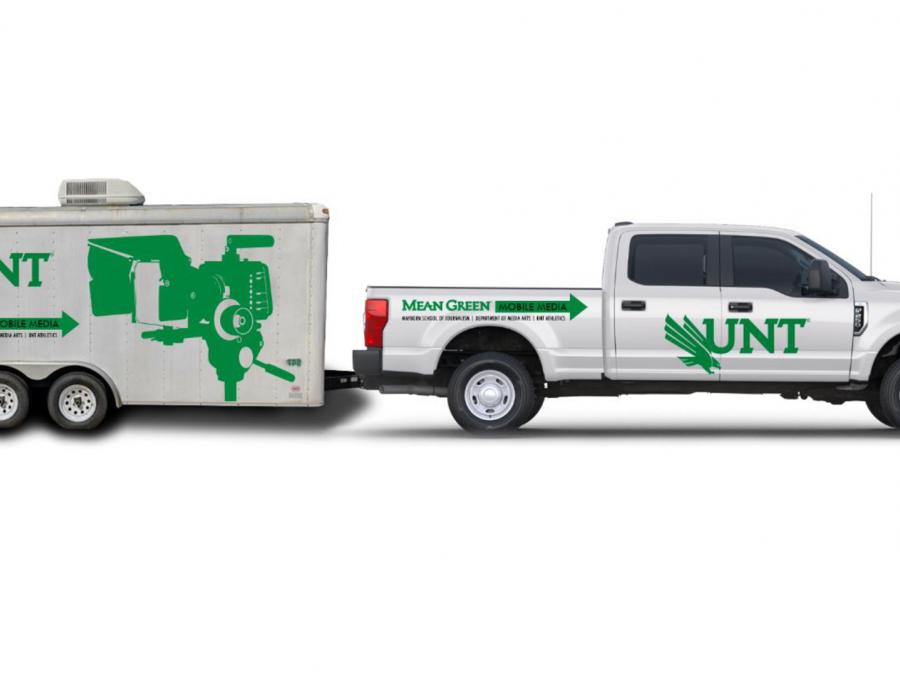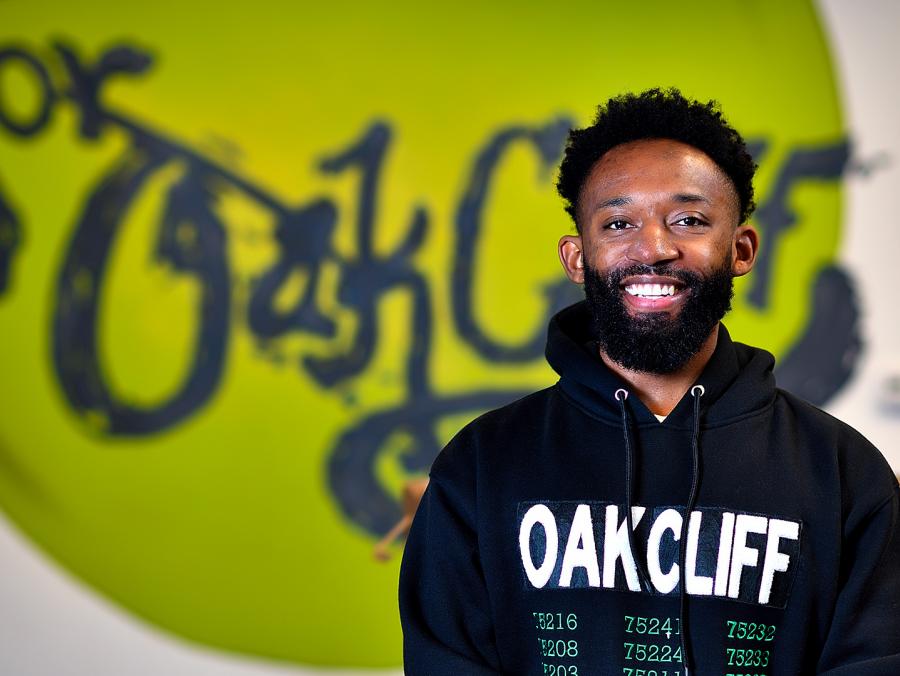s the coronavirus took hold in mid-March, it seemed that everything stopped. The bustling campus became empty as 7,700 classes transitioned online. The traditional commencement ceremony was postponed. Friends had to stay apart.
But the UNT community also came together. Using the lessons they learned as students, our alumni helped others in their communities through their careers in health care, emergency management and government.
They figured out creative solutions, from the teacher instructing his class remotely to the fashion designer who now makes personal protective equipment. A music graduate, quarantined in Spain, played his saxophone to entertain neighbors stuck in their apartments.
Our researchers began looking at ways to fight the virus. Faculty, staff and alumni donated to the UNT Cares fund to help students weather financial challenges, such as a job loss. And many in our community made face masks -- a few even sporting UNT symbols. The following stories go behind the masks to illustrate the dedication and care of the members of our Mean Green Family.
This fall, the campus is expected to reopen. Life will certainly be different, with people wearing face masks and maintaining social distance to remain safe. But, no doubt our UNT community will be stronger and will thrive through the adversity.
"We know the country has rebounded from wars and disasters and the Great Depression, and we know life will get back to normal at some point," says Michael Penaluna ('88), Denton's emergency management coordinator. "Good things do come out of disasters. It makes people appreciate one another and life more."

The coronavirus drastically changed how Patrick Powers ('17), an eighth grade English teacher at Bettye Meyers Middle School in Denton, teaches. Powers usually works with 250 students in the classroom and as a coach. Now he "sees" them through Zoom, videos and email.
"Making an impact -- that's what I missed the most when we first started online teaching," he says. "But I realized I could still do so, it would just require creative methods."
After one student said he wasn't interested in an assignment, Powers learned he had to work with his father and babysit his siblings. And he thought, "If I were a student, what would I want to learn about?"
Powers asked students to create a presentation on the Flipgrid app about college and careers. The first uninterested student chose UNT and engineering/welding as a career -- and the project was presented to Denton ISD's superintendent at an executive cabinet meeting as an example of virtual teaching success. As a UNT student, Powers started The Lost Generation, an organization in which college students visit elementary schools to encourage students.
"It's about letting the students know we're still here for you," he says.
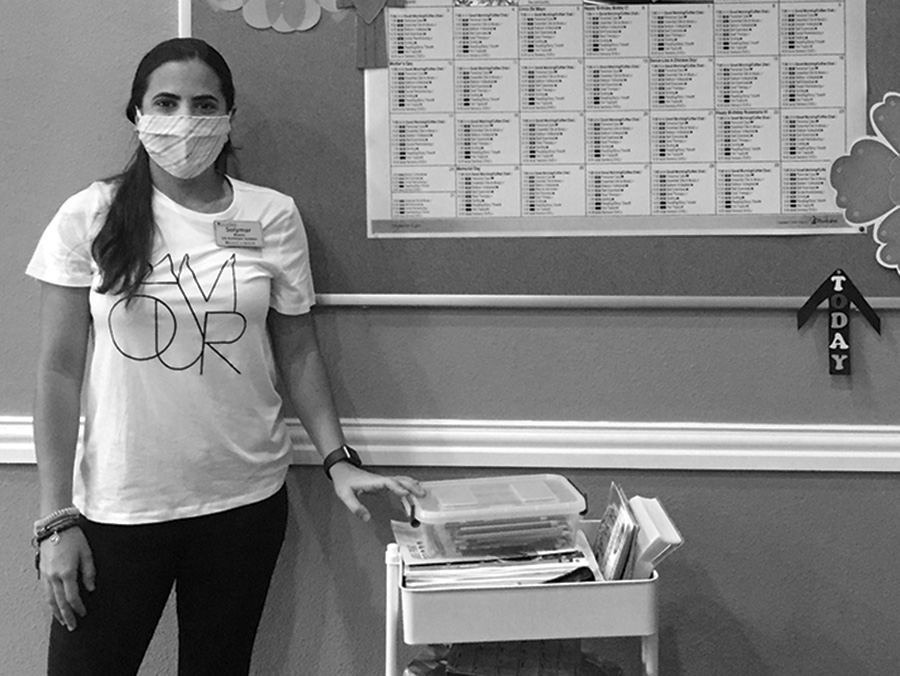
When Solymar Rivera-Torres ('17 M.S.) arrives at Willow Bend Assisted Living and Memory Care Facility in Denton, she puts on her face mask and gloves, rings the doorbell and gets permission to enter and have her temperature taken. Rivera-Torres, a life enrichment assistant, knows the residents with Alzheimer's or dementia are most vulnerable to the coronavirus.
"The pandemic has brought new challenges by the day," she says. "Still, I always keep in mind that challenges make life interesting and overcoming them is what makes life meaningful."
She initiated a pen pal program so residents can write to each other while they social distance. And she set up the "World of Hearts," in which residents can write messages to display on the windows for family and friends.
Rivera-Torres has been surrounded by the elderly, living with one of her grandmothers, since she grew up in Puerto Rico. She came to UNT for her master's degree in health services administration and is now studying for her doctoral degree in health services research with a concentration in applied gerontology.
"This crisis has taught me how the power of a smile or a kind word, the smallest emotion, more often than not can have an effect on someone's life," she says.
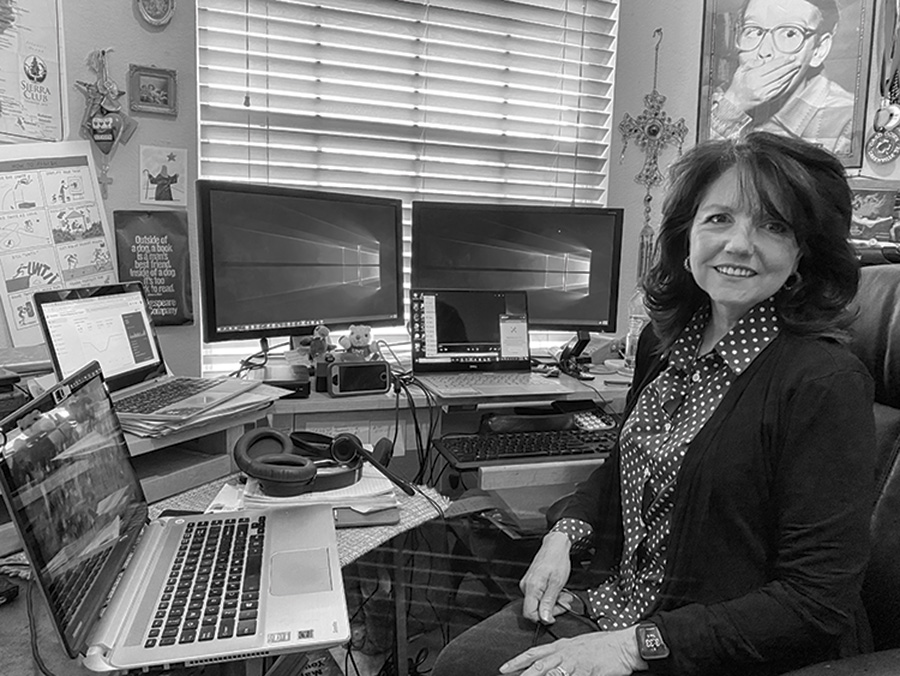
Cathy Mueller's ('19 M.J.) degree in digital analytics helps ease students' worries. As the economy shut down and new regulations took effect, many students had questions about their federal loans. Mueller created a website -- studentaidpandemic.org -- and an 800 number that provided free information to students as part of her executive director role for Mapping Your Future, a nonprofit national organization that assists students in navigating financial aid.
A former newspaper reporter and higher education official, she began her current position in 1996 when she developed a website for student borrowers for the then-called Texas Guaranteed Student Loan Corp.
Other states joined in, merging into Mapping Your Future. Mueller oversees the data showing who is using the website, which was featured on CNN, Money magazine and NPR's Marketplace.
"This has been a very emotional time for people," says Mueller, who is married to James Mueller, associate dean of UNT's Mayborn School of Journalism. "And they're going through a lot. What we're trying to do is help people. We're not the medical people on the frontline, but we want people to know that we're here."
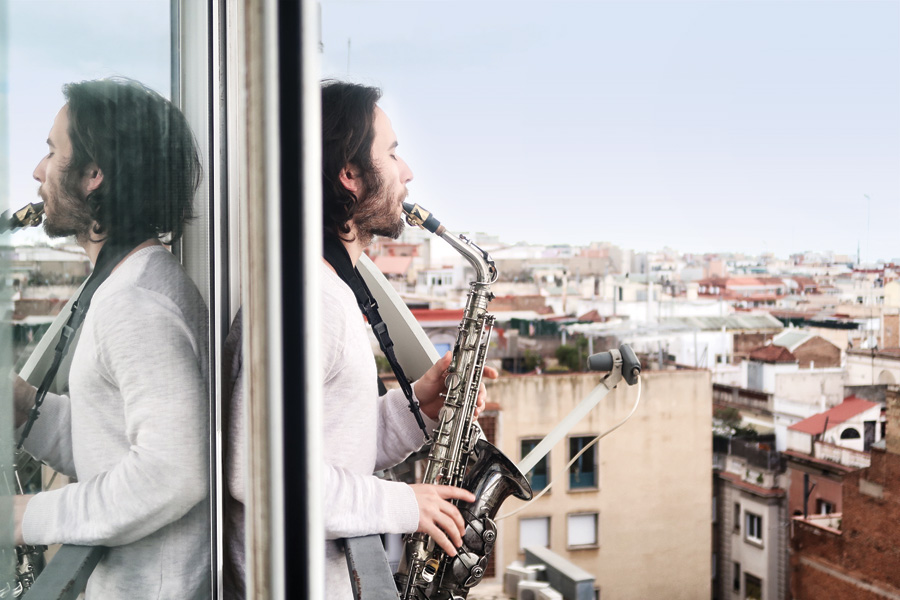
Saxophonist Sami Perfecto ('12) has found a unique stage during the world's coronavirus pandemic. For 15 minutes each night, he performed on the balcony of his Barcelona apartment for his neighbors, who were under state-mandated quarantine to help stop the spread of the deadly virus. But he gained a wider audience when his version of "Preciosa" went viral.
In some ways, Perfecto was prepared for the performance's reception since he's played in his church's praise and worship team all his life and majored in music education at UNT.
"Now more than ever, music is needed by communities in order to bond and connect -- even if it's from a balcony or window," he says.
Perfecto has run the Julio D. Perfecto School of Music in Arlington for more than 10 years. Two years ago, to be closer to his girlfriend, he moved to Barcelona, where he performs regular gigs and helps organize jam sessions around the city's bars for a project called The Sofa Jam. He also teaches online music classes for his school and English lessons to Chinese students in China.
He began playing on his balcony when the quarantine -- during which residents could only go out to get groceries or medicine, take out the trash, walk the dog or commute to essential jobs -- started in early March. His sister, Rebeca Perfecto ('12), director of admissions for the UNT Health Science Center, suggested "Preciosa" by composer Rafael Hernández Marín as a tribute to their Puerto Rican heritage.
He received messages from Puerto Ricans saying they were praying for him and wishing him well. For his last performance in May, he played UNT's alma mater. He'll always appreciate the response that came from his neighbors.
"You could hear claps from all over, as if they were eager to hear more," he says. "Truly beautiful and rewarding to know that we were connecting, even if it's for 15 minutes once a day."
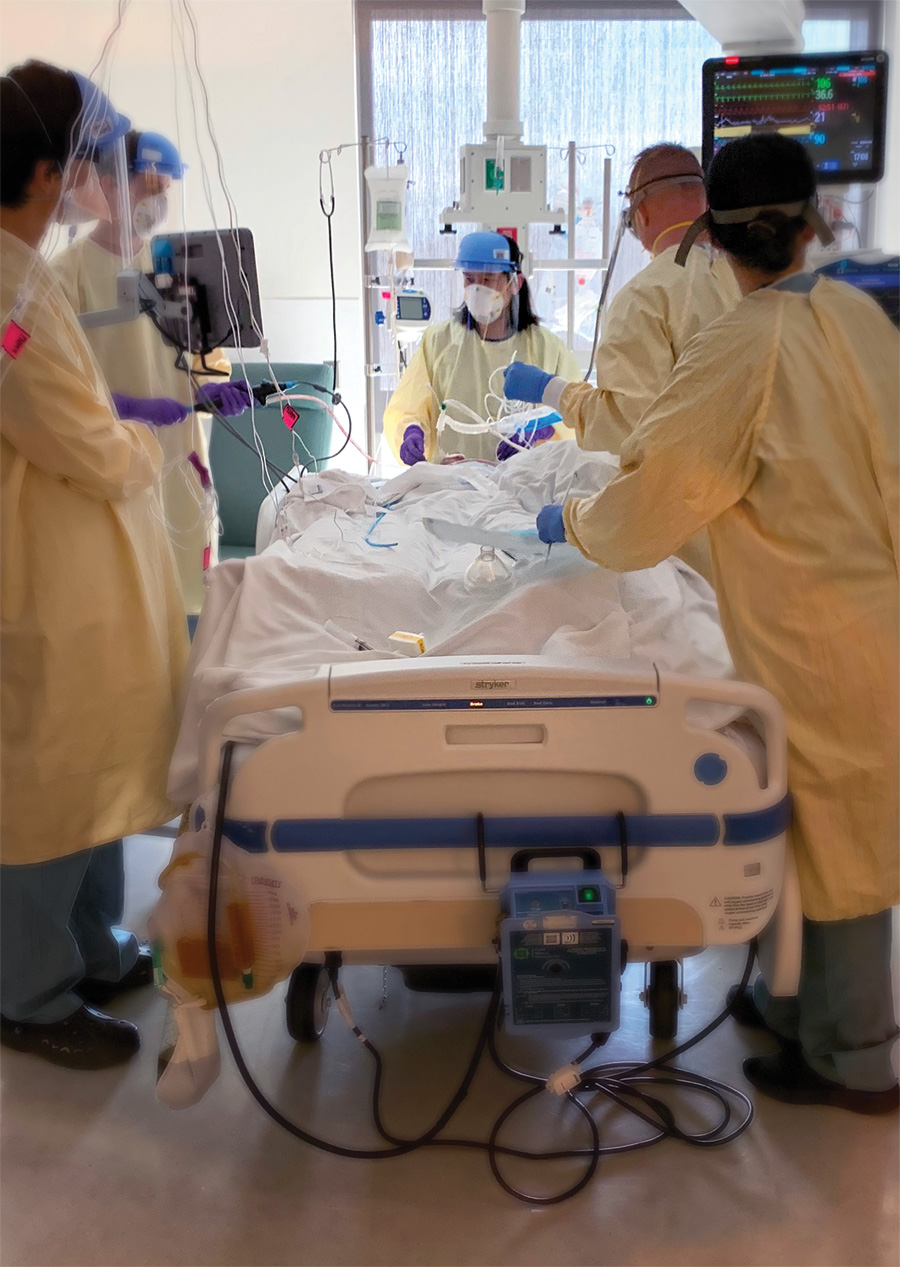
When Tisha Wang ('96 TAMS), a pulmonologist and critical care physician, comes to work, a cheering brigade greets her and her colleagues.
The media has lauded health care professionals like her as heroes for their work on the coronavirus. Children send them letters. Companies have donated food and other items.
"We're just doing our jobs," says Wang, the clinical chief of the UCLA Pulmonary/Critical Care Division at the University of California in Los Angeles Health System. "We've been doing this every single day in our careers as ICU physicians."
Her hospital began preparing for the virus in March, when news reports came out about Europe's high infection rate. She and the staff worked around the clock to establish clinical guidelines, resource allocation and staffing.
Working in the intensive care unit, Wang has always taken care of very sick patients on ventilators. But now she's not only wearing more PPE than usual to treat her patients with COVID-19, but occasionally she is tasked with putting on the gear quickly to respond to emergencies -- raising the overall stress level. When she treats COVID-19 patients, she doesn't go home, but to the hospital campus' hotel to avoid affecting her loved ones. She says this experience has its ebbs and flows -- from the high of saving patients' lives to the low of seeing news reports of protests and lack of social distancing.
"But we are trained to deal with unpredictability," she says.
Wang grew up in Gainesville and both of her siblings also attended UNT's Texas Academy of Mathematics and Science. Her sister Connie ('98 TAMS) is a pediatrician in Seattle, while Andrew Wang ('92 TAMS) works as a journalist in Los Angeles.
Wang is prepared to continue fighting COVID-19 for the long haul.
"We just have to acknowledge this is going to be a marathon," she says. "And we have to adjust to it."
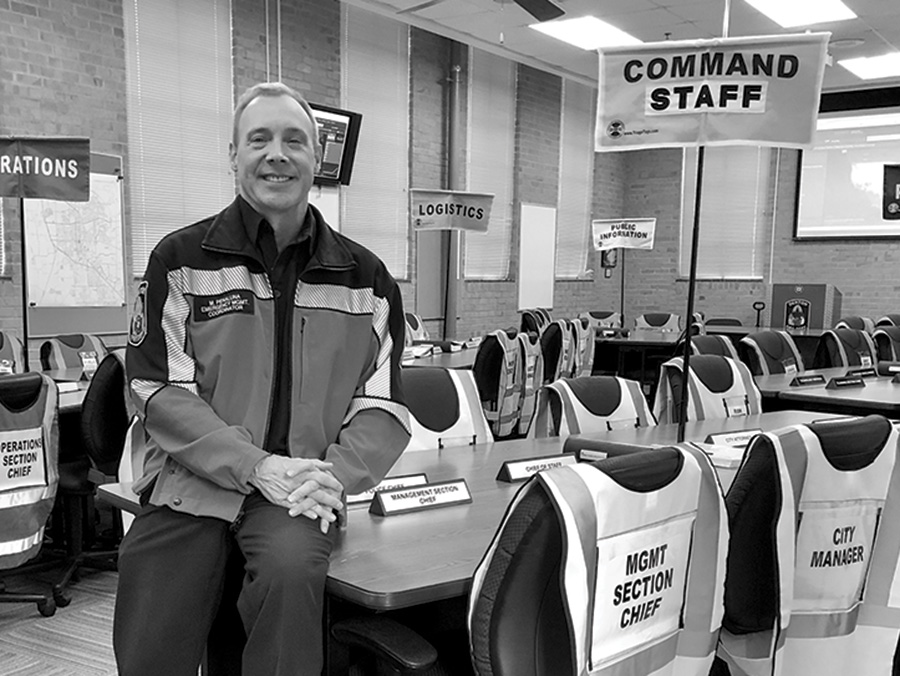
For Michael Penaluna ('88), the duties came quickly. As Denton's emergency management coordinator, he activated the City Emergency Operations Center and helped implement the stay-at-home order for the pandemic. His EOC staff arranged hotel space for the homeless when a local shelter had to close. He assisted with the response to an outbreak of the virus at the Denton State Supported Living Center and coordinated plans for COVID-19 testing at local nursing homes.
"This is what my colleagues and I have trained for," he says.
His journey began when as a junior transfer student studying emergency administration and planning, a new program at UNT learning best practices through case studies, disaster research and methodology.
Now with Denton for 15 years, Penaluna is working on his master's in emergency management and disaster science. He's overseen tornadoes and hurricane recoveries, but the coronavirus is unique for its length and unknowns. Penaluna has established the Michael A. Penaluna Endowed Scholarship in Emergency Administration and Planning to provide financial assistance to those in need.
"We're here to help people," he says, "and improve lives during the worst time in their lives."
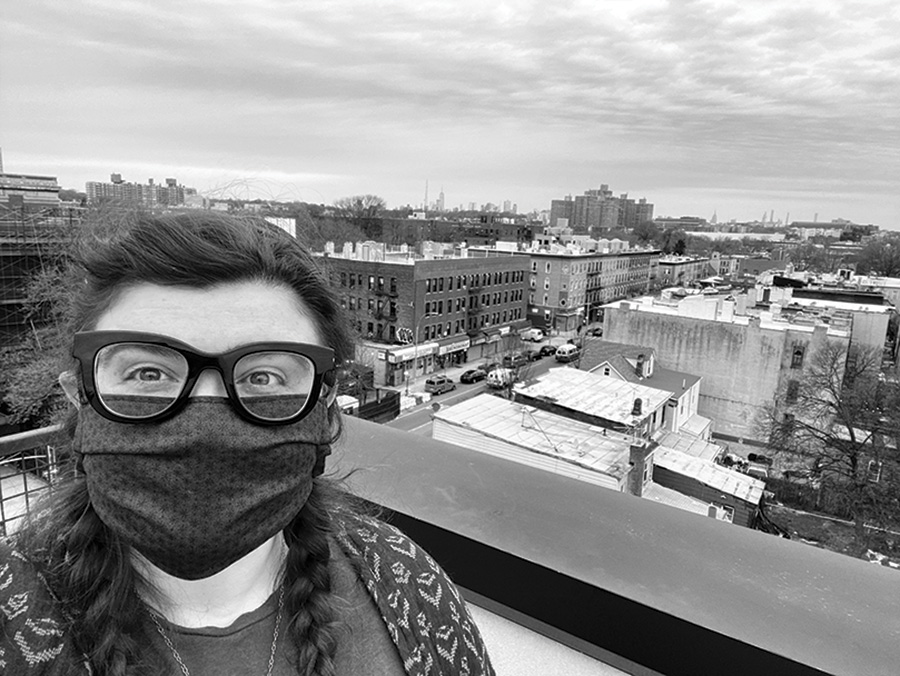
Hannah Wise ('19 M.A.) can't go farther than her mailbox. She lives in the epicenter of the pandemic -- New York City -- and has a suppressed immune system due to Crohn's Disease. But as social strategy editor for one of the nation's most influential newspapers, The New York Times, Wise shares information across the publication's social media platforms and get readers' feedback.
"Obviously, journalists are limited to where we can go," she says. "So we're really having to work hard to cultivate sources using other techniques."
For one project, she pored over 700 submissions from readers about their lives before the pandemic. The paper also sought out stories from readers who were near nursing homes in Seattle, where the pandemic first broke out in the U.S., and photos from health care professionals wearing their protective gear.
A fitting topic, Wise wrote her master's thesis on the relationship between journalists and communities as a Mayborn School of Journalism student.
"In times like this, journalism is more important than ever to explain what's happening," Wise says. "People are looking for information that they can trust."
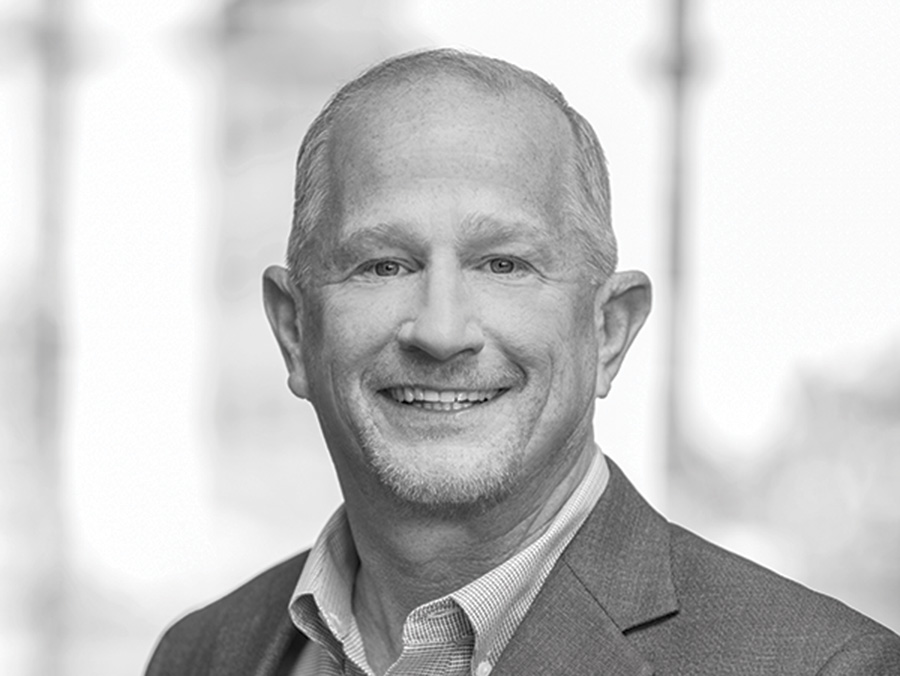
Lynn Gravley ('87) knows his work has always been vital. The pandemic made others realize its importance.
As founder and CEO of NT Logistics in Frisco, Gravley oversees transportation for manufacturers that specialize in food and consumer packaged goods such as Nestle Water and Rahr and Sons Brewing.
"Logistics and the supply chain has kind of been invisible. It's like electricity. It just works and everybody takes it for granted," says Gravley, whose company hosts the yearly UNT Capstone Competition with UNT's G. Brint Ryan College of Business.
Gravley majored in biology -- and drove a truck on weekends. After graduating he started his own trucking company that led to the establishment of NT Logistics, where he's able to use his scientific background, especially data analytics, to determine his clients' needs -- such as if a lower cost per pound can save them millions of dollars.
As an essential business, all of his 40 employees have come to the office -- so the company catered lunch every day. And he's helped his clients work through the challenging circumstances.
"COVID-19 is certainly a crisis," he says. "But how can we help someone through it?"
COVID-19 managed to close down many of the physical spaces on campus -- but even an unprecedented pandemic couldn't dampen the UNT community's determination to support its equally indomitable students.
With barely a week to prepare, professors scrambled to move their courses online to create engaging digital lessons, even finding ways to make art, music and science accessible from afar.
Meanwhile, campus entities like the Psychology Clinic and Counseling and Testing Services moved quickly to allow for remote outreach, including support groups.
"I am extremely grateful for the amazing team of dedicated individuals who made it possible to continue the clinic's mission of excellence in training, research and service, even during the most challenging of circumstances," says Randy Cox, director of UNT's Psychology Clinic.
Students' physical health also remained a priority, with the Pohl Rec Center offering online group fitness classes and outdoor virtual clinics via Zoom and YouTube.
"We're about socializing, working out together and helping the UNT community stay healthy -- and we want to continue to be a part of that journey," says Laurie Klein, director of recreational sports.
Additionally, the university focused on providing resources for financial health, including expanding its emergency grants-in-aid program. The Murphy Center at the G. Brint Ryan College of Business also made available external funding resources to students, faculty and alumni. And UNT brought the community together through virtual University Day and Earth Day events, and invited spring graduates to take and share photos using virtual campus backdrops in Zoom.
"I continue to be amazed every day by the support, resilience and ingenuity displayed by our students, staff, faculty and alumni when every hour seems to bring more change and more necessary adaptations," says UNT President Neal Smatresk. "As difficult as it may feel, we are becoming a stronger, more connected community through this shared experience."
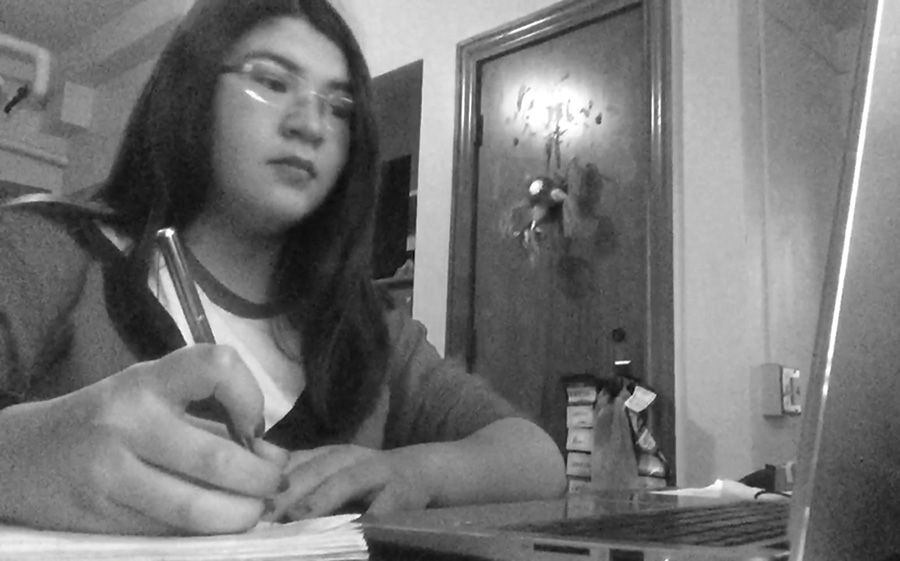
Prepping class instruction while taking care of a newborn. Teaching from the car. Presenting a musical over Zoom. When the pandemic forced classes to go online, UNT faculty and students persevered -- and got creative. It's no wonder the Dallas Business Journal ranked UNT in the highest tier of universities' adapting to life and learning during COVID-19.
Ryan Boettger, assistant professor and assistant chair in UNT's Department of Technical Communication, converted a technical writing course to an online format for 750 students and 20 adjuncts and teaching fellows -- all while watching over his 9-week-old son, Liam.
"It's difficult not to stay positive when I get to be assistant chair and dad, all from home," he says.
Faculty and staff went above and beyond in other ways, says Ralf Schmidt, chair and professor in UNT's Department of Mathematics.
"We had a staff member delivering tablets and cameras to people's homes, after regular work hours, so that they could teach," he says. "We had an adjunct instructor drive to campus and teach in her car when her home internet was out. And in a stunning act of kindness, a graduate student donated a small number of N95 masks to the department, just in case someone had an urgent need -- and someone did."
Instead of canceling their production of the musical Once on This Island, theatre students put it online.
"I learned to be adaptable," recent theatre graduate Mariah Fleming ('20) says. "You just have to learn life doesn't end up the way you expect it to. You can be sad and you can mope for a little bit, but then you have to get up and deal with the changes that are happening."
Check out the From the Nest video series highlighting how Vanessa Bautista and other students are thriving through COVID-19.
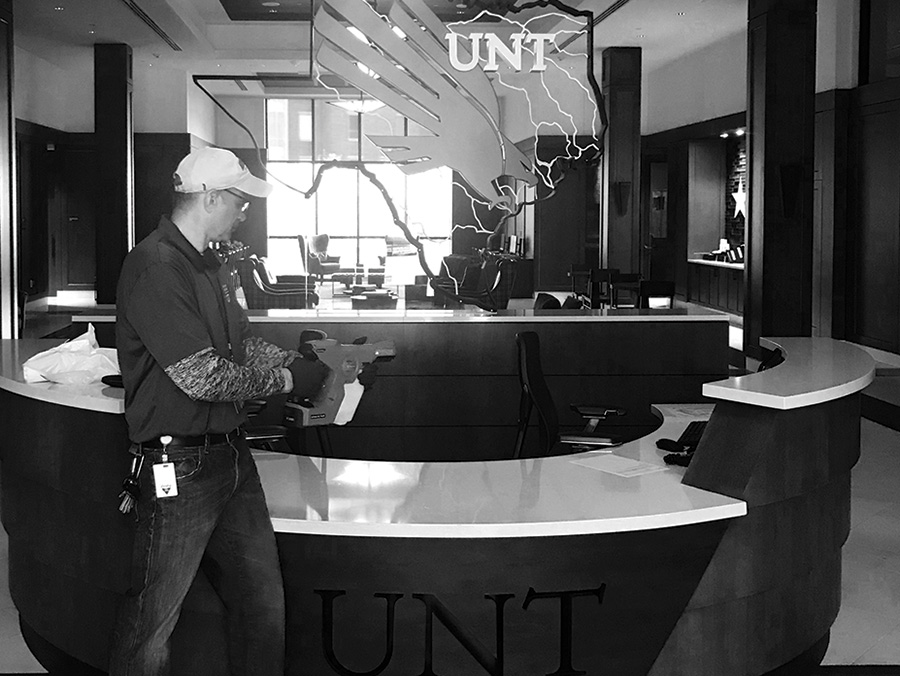
From essential cleaning services to a children's book, the UNT community made health and safety awareness a priority during the pandemic.
On campus, the custodial staffs from the Facilities and Housing departments got into action by using a hospital-grade disinfectant and electrostatic and pump sprayers to clean frequently touched surfaces in classrooms and residence halls. The Student Health and Wellness Center stayed on top of the situation by not only seeing patients, but calling students, staff and faculty who traveled or showed symptoms. They also implemented telemedicine procedures. Mental health became a priority too. Counseling and Testing Services provided virtual counseling sessions. The Collegiate Recovery Program team hosted Zoom meetings for their peer led group meetings. The Division of Enrollment hosted social activities on Zoom, including group workouts and a game night, as a way for colleagues to check on each other.
"Everyone is struggling in some way, whether it's related to their job, health or school," says Landon Ellison, the division's director.
Those complex feelings inspired a bilingual picture book with activities for children, Behind My Mask, Detras de me cubrebocas, by Martha Samaniego Calderón, an art education graduate student, and Daniel Heiman, assistant professor of bilingual education in UNT's College of Education.
"It helps readers know that their emotions are being acknowledged," Samaniego Calderón says, "Even if they are hidden behind a mask."
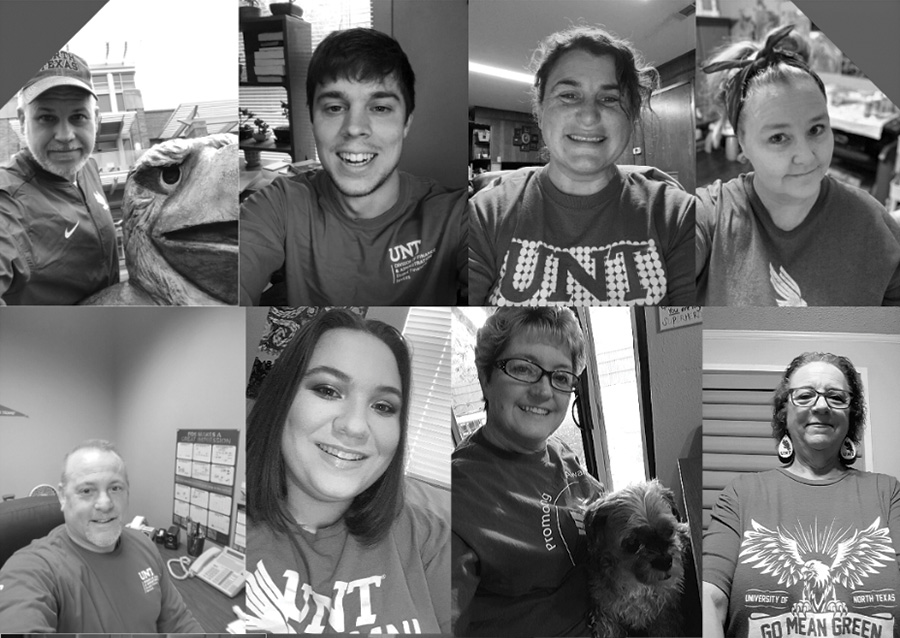
Like many seniors, Nikki Yates ('20) missed taking part in May's traditional UNT graduation ceremony due to the pandemic.
But the Mean Green family, including Yates, a criminal justice graduate, pulled through to help those affected by the pandemic.
Yates was part of the Adopt a University of North Texas Senior group on Facebook, through which community members selected a graduating senior and sent them gifts and notes to honor their accomplishments. Yates, who wants to be a homicide detective, even found a mentor in Heidi Hess, a forensic investigator who "adopted" her.
"It has been really amazing to be adopted and to know that there's a big community that wants to make us feel special," Yates says.
The UNT community buoyed spirits in other ways. Many individual colleges created videos to congratulate their students. Staffers, such as the Student Financial Services team (pictured), wore green on Fridays as part of Mean Green Pride Day during their Zoom meetings. The community donated to the UNT Cares Fund set up to help students who faced financial challenges.
And in June, supporters drove by in their cars across the university and honked as part of an appreciation parade to salute the custodians who come to campus to clean the 16 residence halls and other facilities.
Pete Beaulieu, assistant director of Housing Services, cast a net for ideas to champion the often unsung heroes.
"I wanted to find a way to thank them to the best of my ability for enduring all the stress over the past months, " he says.
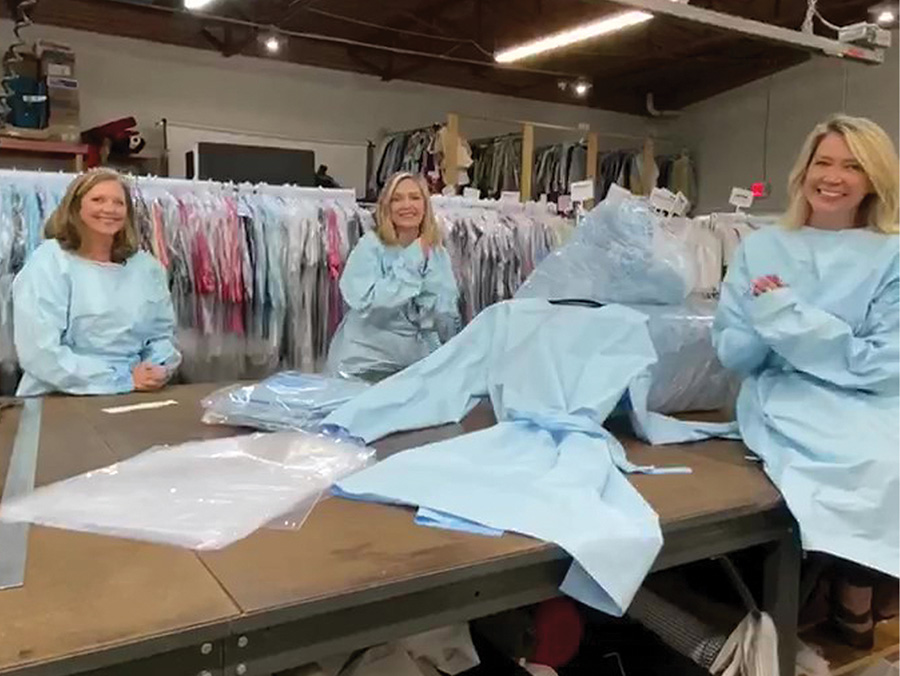
Finley Moll's ('85) fashion design business completely changed overnight.
Moll was about to ship her spring collection when -- on "the worst Friday the 13th we have ever had" -- the city of Dallas announced a stay-at-home order, shutting down businesses and schools.
"It was just kind of like, 'Whoa,'" she says. "And, at the same time, we were just hearing about how medical professionals desperately needed personal protection equipment. "
Moll and her employees got to work, creating more than 5,000 medical-grade isolation gowns for health professionals.
Gone were the beautiful bolts of fabric for her shirts, replaced by huge 1,000-yard bolts of fabric that required its own special needles and thread and had to be rerolled into smaller bolts.
"I feel like I'm in a startup again," says Moll, who began her company, Finley Shirts, in 1995. "Sometimes it's stressful, but the problem-solving aspect of it is exciting. "
Moll also used her designer fabrics to make masks, with 20% of proceeds from the webstore going to North Texas regional charities.
"It's always rewarding to be able to rise to a challenge and do something you didn't think you could do," she says. "What can we do with what we have and make this work?"
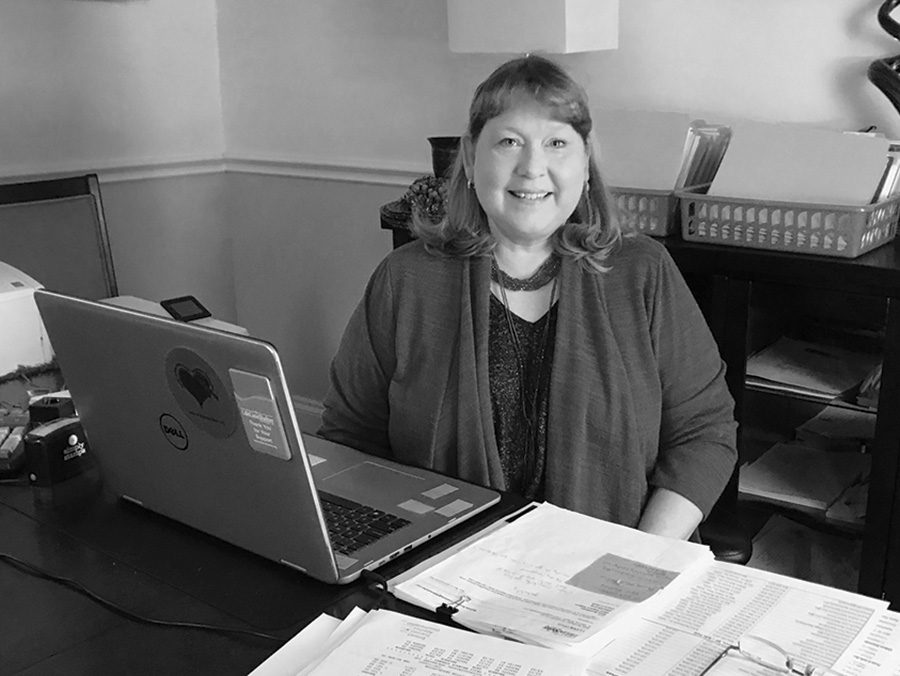
Melinda Rodgers ('00 M.P.A.) saw her workload quadruple. As executive director of Lifeline for Families in Grand Prairie, she was already booked with a caseload of about 20 families. But the pandemic increased the urgency.
Lifeline works with the families of Grand Prairie ISD students who are homeless by finding them housing, jobs and other necessities. The goal at the end of the three-month program is that they will be able to sustain themselves.
"It's not a handout, it's a hand up," she says. "We want every adult in the family to contribute."
Rodgers began volunteering for the organization in 2004. She's had a diverse career, working for city government and corporations, and teaching on the college level. In 2013, she accepted her current position and often deals with budgets and regulations. She conducts her work from home during the pandemic, communicating through Zoom and the phone, while a caseworker at the office slides paper documents through a quarter-inch gap at Lifeline's entrance for clients without internet access.
"We are fulfilling a need that's out there, a desperate need," Rodgers says. "I love what I do, and I'm very blessed I can do that."
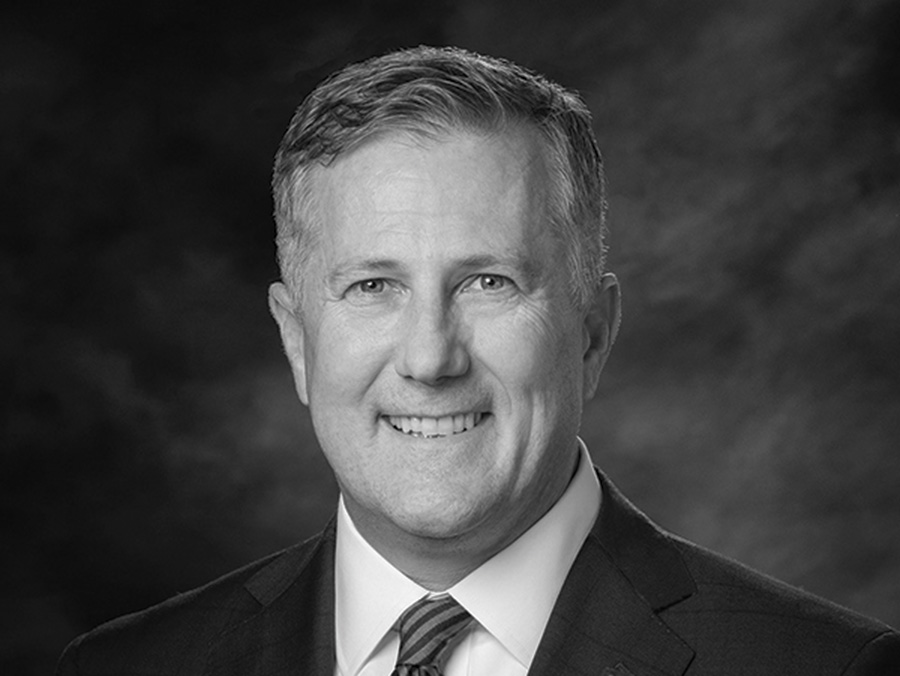
As Plano's city manager, Mark Israelson ('94, '96 M.P.A.) sees many sides of this crisis -- from the worried business owner who's had to shut down a restaurant to the caretaker who's concerned about the safety of a grandparent.
"This pandemic is beyond a challenge," he says.
Israelson has worked for his hometown of Plano for more than two decades. After he graduated from UNT in 1994, he served as youth sports coordinator for the YMCA, which inspired him to pursue a career that would combine his business acumen and service to the community.
For the pandemic, he's overseen a stay-at-home order and has had to deal with the budget for the city -- where sales tax receipts have gone down due to business closures. Drawing from his public administration lessons, he says cities usually prepare for emergencies by putting their plans into action.
"The variables are different from anything we've seen from a natural disaster," he says adding this situation also provides a lesson on what we might take for granted.
"A lot of those normal activities in life for de-stressing -- going to a ballgame or movie -- are missing elements," he says. "I think we value those things differently now."
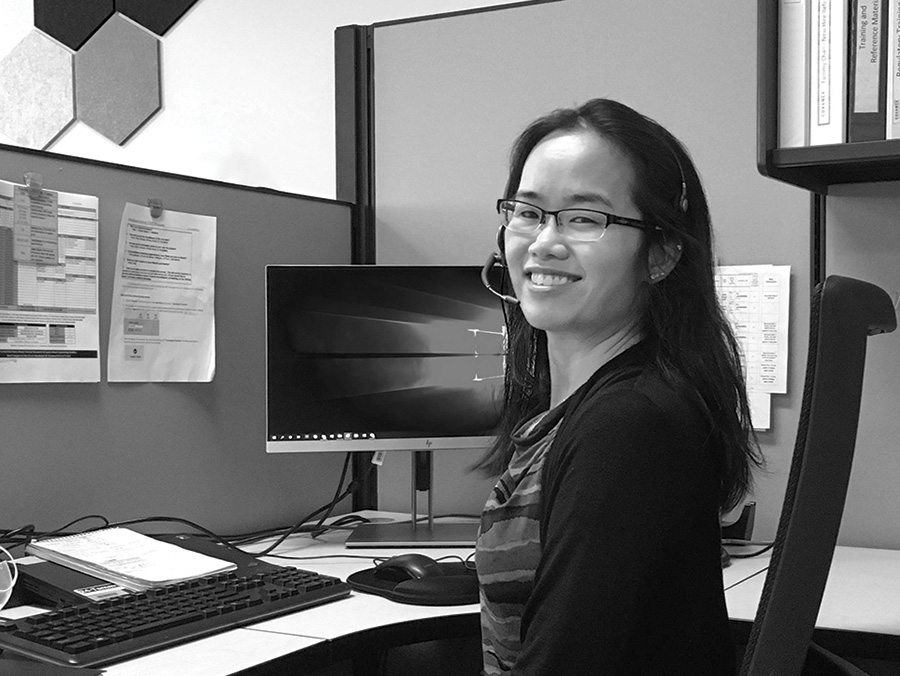
Tammy Chan's ('04) work can save people's lives. As a clinical researcher overseeing drug trials for Covance, a drug development company in Dallas, her team is scrambling to find a cure for deadly diseases.
"COVID-19 has given a lot of perspective on the importance of the work we do, and how it impacts the world," she says.
Chan studied biology at UNT and worked in professor of developmental physiology Warren Burggren's lab. She later earned her doctorate in developmental biology from the Baylor College of Medicine. Shen worked as a field application scientist for Molecular Devices, a biotechnology company, where she trained researchers on how to use equipment for clinics across the country before landing at Covance in 2019.
"A lot of diseases don't have a cure," she says. "It's such a responsibility to help those who are in those first trials. "
Chan has recruited UNT students to work at Covance through UNT's Career Center. And she wants them to know the importance of science.
"The COVID-19 pandemic underscores the importance of people having the curiosity, enthusiasm and persistence to pursue cures for people who don't have them," she says.
COVID-19 research efforts
As exemplified by our excellence as a Tier One research university, faculty and staff quickly pivoted to address issues related to the global health crisis.
- Education assistant professor Christopher Long is studying learning environments before and after the pandemic shutdown.
- Engineers and artists in the College of Engineering and the College of Visual Arts and Design teamed up to use advanced 3D printing labs to produce face shields to protect faculty and students on campus.
- Future-thinking students in artificial intelligence classes participated in an international competition to create the most accurate model of the spread of COVID-19.
- A College of Engineering team collaborated to adapt a design and use 3D printing technology to manufacture splitters that will allow doctors to use a single ventilator to treat two patients.
- Linguistics professor Shobhana Chelliah and advertising assistant professor Sara Champlin are collaborating with researchers at Indiana University to research effective communication on COVID-19 with Burmese refugees in Indiana.
- Chemistry professor Andrés Cisneros is creating computer simulations to identify specific protein inhibitors that could slow or stop the COVID-19 virus either as a vaccine or a therapeutic treatment.



